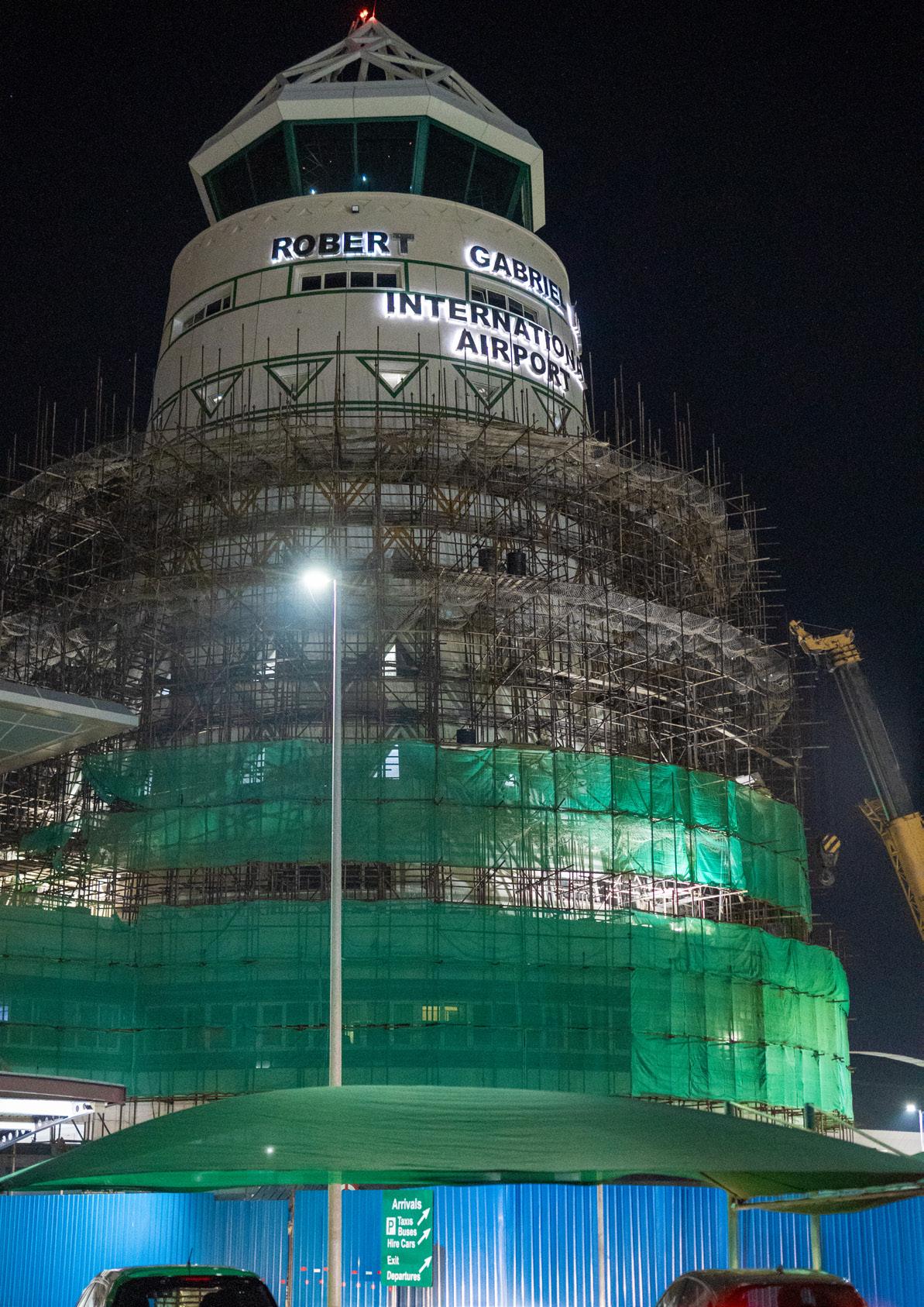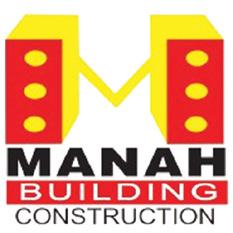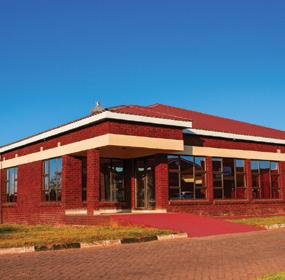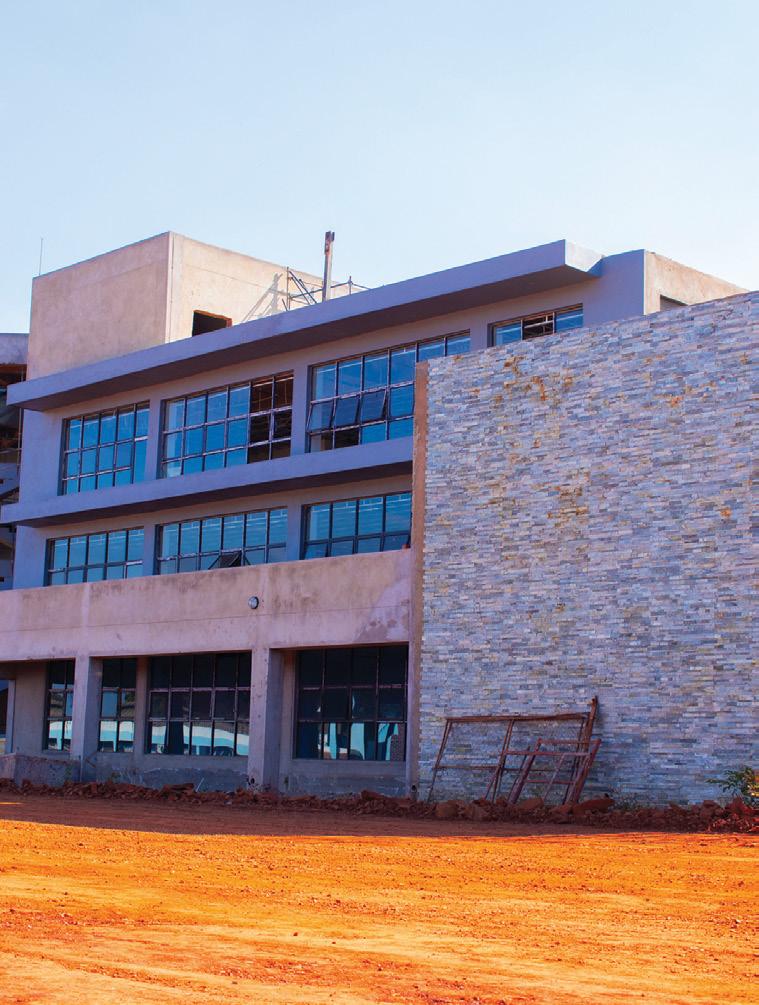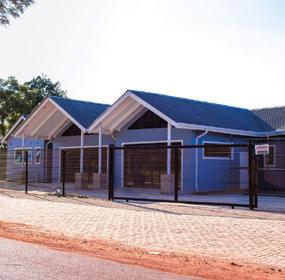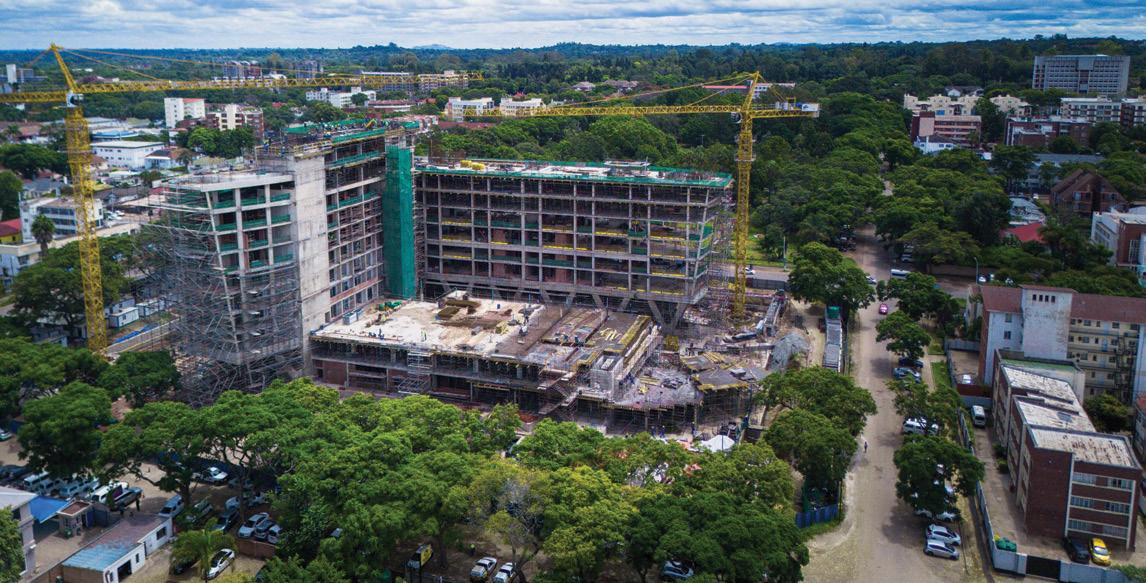


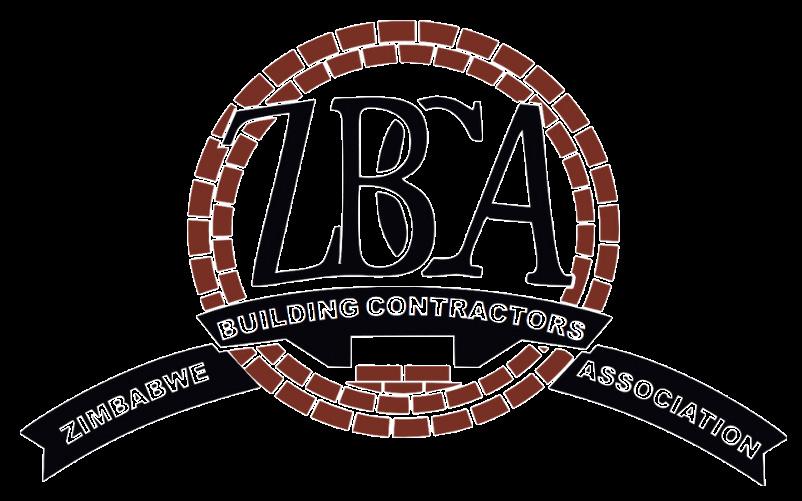





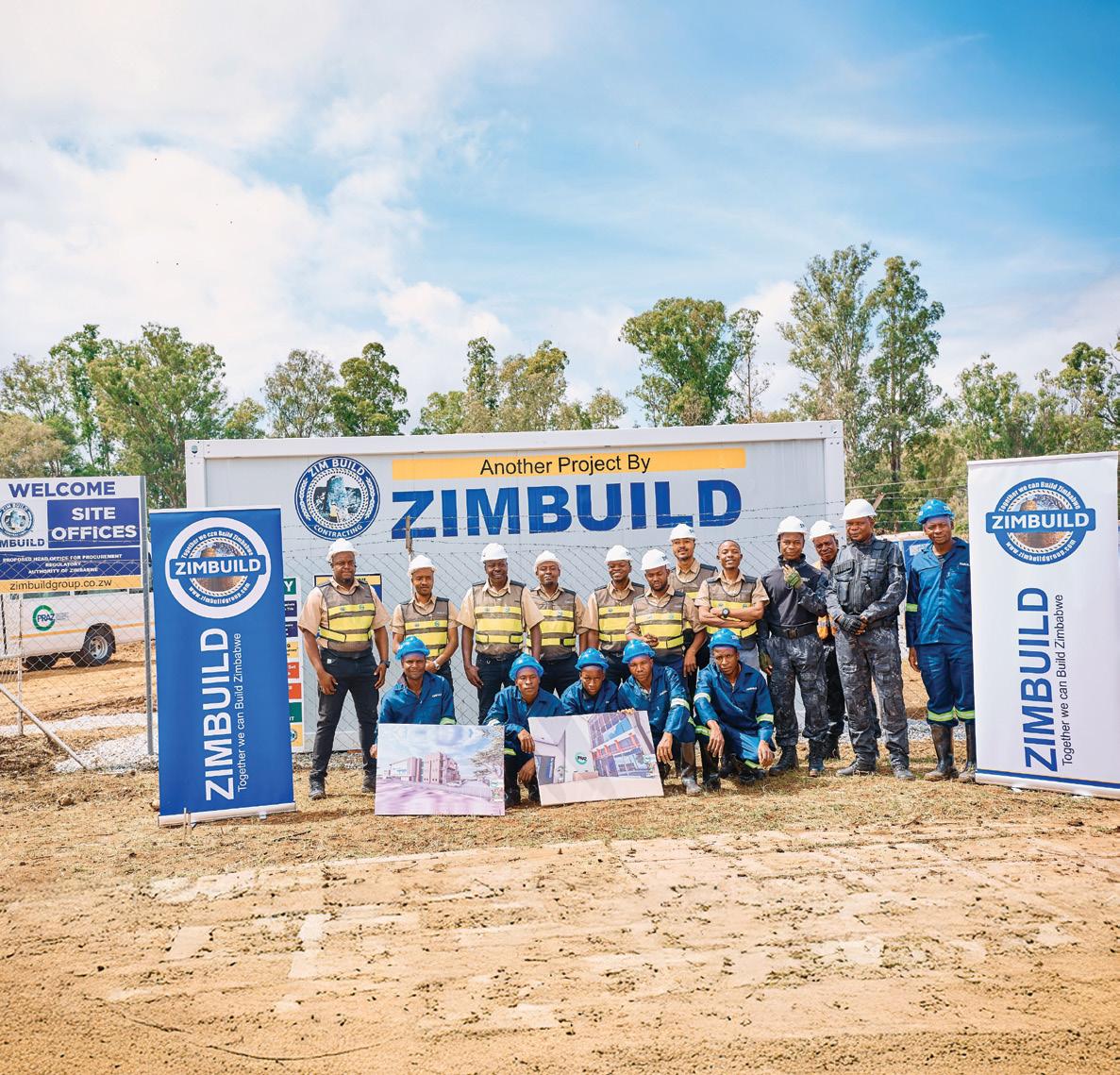







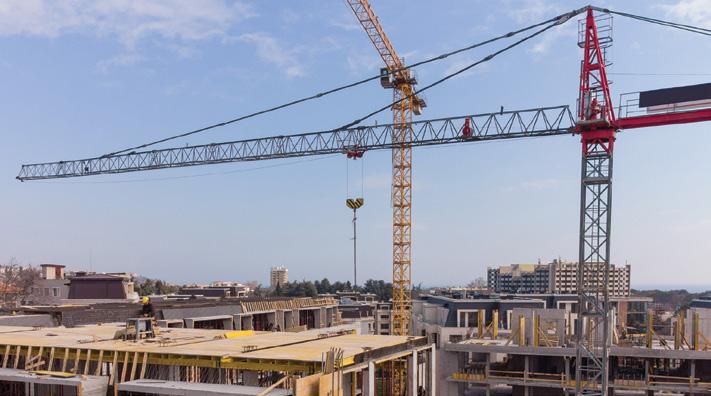

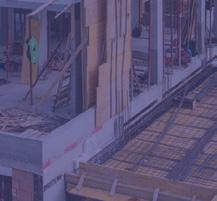




























Welcome to the very first edition of the Zimbabwe Building Contractors Association (ZBCA) Magazine! We are thrilled to launch this platform as a dedicated space to celebrate our industry’s achievements, share insightful perspectives, and chart a bold path toward Zimbabwe’s economic revival through construction. As we embark on this exciting journey, our focus is clear: empowering local contractors, fostering innovation, and positioning Zimbabwe as a formidable player on the regional and international stage.
Zimbabwe stands at a pivotal juncture, with the construction sector playing a vital role in driving economic growth and social development. Strong leadership and a clear vision are essential to harness the sector’s potential. Through strategic planning and steadfast commitment, local contractors are increasingly becoming the architects of Zimbabwe’s future, transforming skylines and communities alike.
Our industry’s leadership must champion sustainable practices, technological innovation, and capacity building to ensure long-term resilience.
Construction is more than just erecting structures; it’s the backbone of economic revival. It creates employment, stimulates local industries, and boosts investor confidence. By prioritizing infrastructure development, roads, schools, hospitals, and residential complexes, we lay down the foundation for a prosperous Zimbabwe.
The sector’s revival hinges on fostering a conducive environment for growth, where local talent and indigenous contractors take center stage.A key pillar of our vision is promoting local content and empowering indigenous contractors. Zimbabweans possess immense talent, ingenuity, and entrepreneurial spirit. By prioritizing local participation, we ensure that benefits stay within our communities, creating sustainable jobs and fostering national pride.
The ZBCA is committed to advocating for policies that favour local contractors and facilitating access to opportunities in both domestic and regional markets. Zimbabwe’s construction industry faces unique challenges from resource constraints to regulatory hurdles.
However, resilience and innovation are our strongest tools. Embracing new building technologies, sustainable materials, and adaptive project management strategies enables us to overcome obstacles. Our industry’s resilience not only sustains ongoing projects but also paves the way for pioneering solutions that can redefine construction standards across Africa. Success in construction depends on collaboration.
Multi-sectoral engagement, bringing together government agencies, financial institutions, suppliers, and allied service providers, is crucial. Banks and insurance companies, for instance, provide financial security and liquidity, easing burdens on contractors.

Suppliers of construction materials and equipment ensure timely delivery, while allied members of the ZBCA create a supportive ecosystem. The association serves as a unifying roof, fostering relationships that translate into efficiency, innovation, and shared prosperity. Today, Zimbabweans are increasingly ready to take their trade beyond borders.
Our industry’s expertise, combined with strategic partnerships and modern technology, positions us to compete regionally and internationally. Zimbabwe’s construction professionals are gaining recognition for their quality work, and the time has come for our industry to expand its footprint, building infrastructure and confidence across Africa and beyond.
As we inaugurate this magazine, our message is one of hope, unity, and proactive leadership. The Zimbabwe Building Contractors Association is committed to championing local industry, fostering innovation, and nurturing collaborations that will propel Zimbabwe to new heights.
Together, with resilience and a shared vision, we will build a brighter future for Zimbabwe one brick, one project, one success at a time.
Thank you for being part of this exciting journey. Here’s to a future where Zimbabwe’s construction sector leads the way in Africa and the world!




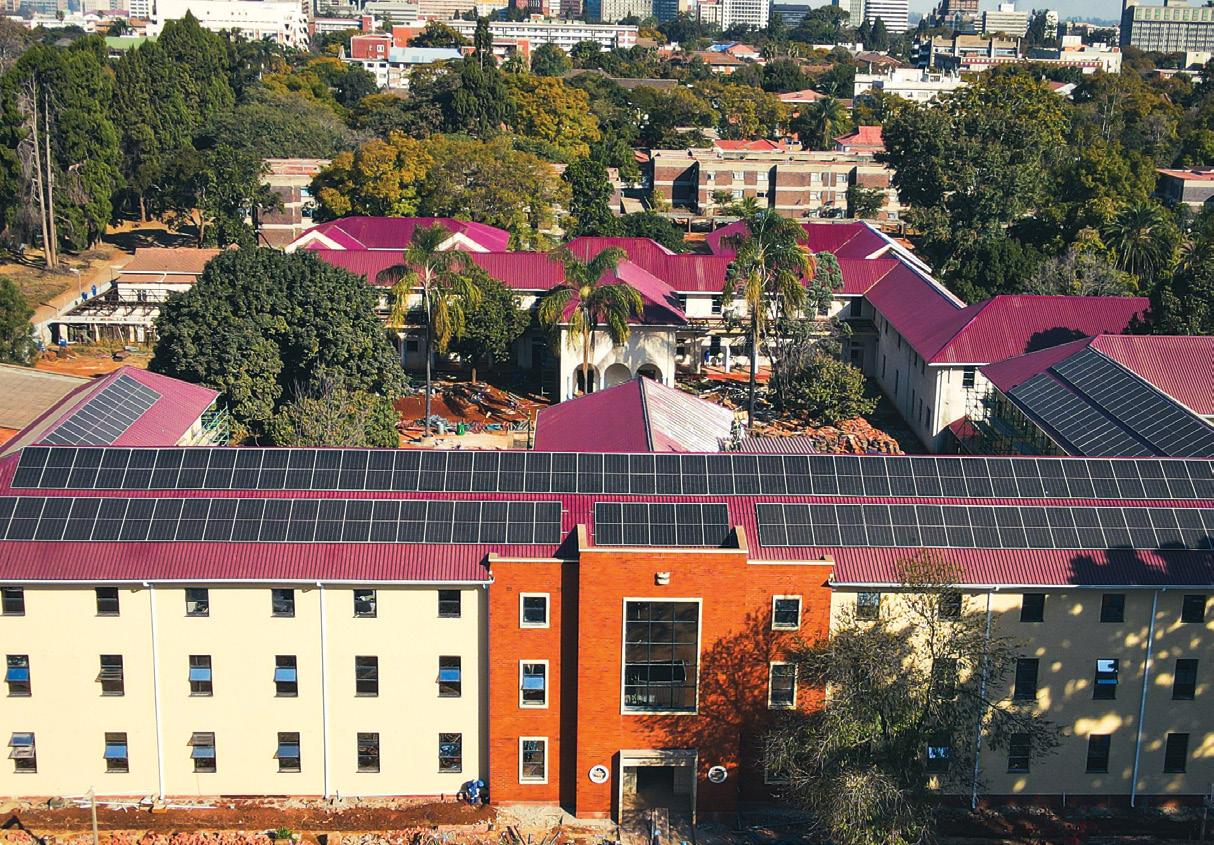
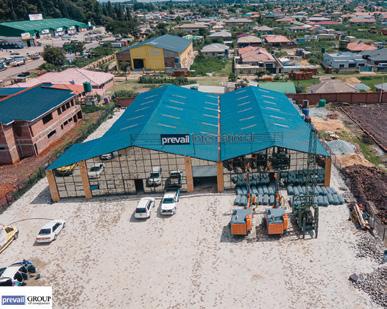



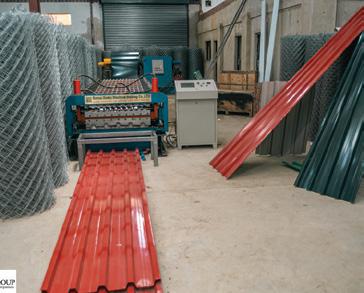




























The Evolution and Future Outlook of the Zimbabwe Building Contractors Association (ZBCA): Championing Growth, Professionalism, and Inclusive Development in the Built Environment.
Since its establishment in 1985, the Zimbabwe Building Contractors Association (ZBCA) has evolved into a distinguished non-profit national organization dedicated to representing the interests of emerging and established building contractors across Zimbabwe. Rooted in a rich history of advocacy, professionalism, and industry development, ZBCA has consistently strived to elevate standards within the construction sector, aligning its growth with the broader
From its inception, ZBCA has been committed to upholding the highest standards of workmanship and ethical practices. Its core mission emphasizes promoting professionalism, empowering members, and fostering a culture of integrity and excellence in the construction industry. As a member-driven organization, ZBCA thrives on active participation from its members, who contribute through involvement in various regional committees and specialized portfolios. This participatory approach ensures that the association remains responsive to industry needs and dynamic in its strategic advocacy.
The association’s focus extends beyond representing contractors; it plays a pivotal role in registering tradesmen across key sectors, including Building Construction, Civil Engineering, Electrical Engineering, and Structural Engineering, thus ensuring that skills and professionalism are formally recognized and continuously developed. Moreover, ZBCA registers suppliers and service providers as associate members, creating a comprehensive network that facilitates collaboration, resource sharing, and industry-wide growth.
Over the years, ZBCA has expanded its footprint to encompass a nationwide presence, with a diversified membership spread across four key administrative regions: Northern, Southern, Central, and Masvingo. Recently, the association established regional offices, including a strategic office in Bulawayo, covering Matabeleland, and Gweru, which serves the Central Region. This regional structure enhances the association’s ability to address local challenges, foster regional cooperation, and promote inclusive growth within Zimbabwe’s construction industry.
ZBCA’s vision is “to be the leading valuable business member organization in the built environment, by promoting, empowering, and capacitating a growing membership while fostering equity in the construction and allied industries.” Guided by this vision, the association is positioning itself as a key influencer in policy formulation, resource mobilization, and industry advocacy, especially in the context of Zimbabwe’s evolving Construction Bill and legislative reforms that seek to better represent contractors’ interests.

vision of transforming Zimbabwe’s built environment. transformation in the years to come.
The future of ZBCA is anchored on pillars such as Capacity Building, Resource Mobilization, Investment Hub, and Policy Formulation and Advocacy. These pillars will be supported by core values of sustainability, teamwork, integrity, professionalism, and innovativeness.The association envisions a future built on partnerships, collaborations, and stakeholder engagement, recognizing that collective effort and shared knowledge are vital for industry growth.
Research and innovation will play a central role in this trajectory, fostering new construction technologies, sustainable practices, and market opportunities. The association aims to position itself as a nexus for industry research, technological advancement, and sustainable development, ensuring Zimbabwe remains competitive in the regional and global construction landscape.
Collaboration, Stakeholder Engagement, and the Path Forward in an increasingly interconnected world, ZBCA’s future will focus on forging strategic alliances with government agencies, financial institutions, international development partners, and industry stakeholders. Such collaborations will enable resource mobilization, capacity building, and the development of a robust industry ecosystem that supports both small and large contractors.
Through active engagement in policy advocacy, the association seeks to influence legislation that fosters fairness, transparency, and growth opportunities for contractors. The upcoming reforms in the Construction Bill exemplify this commitment, as ZBCA continues to advocate for policies that reflect industry realities and promote sustainable development. The Zimbabwe Building Contractors Association’s journey from a national advocacy body to a comprehensive industry player exemplifies resilience, professionalism, and progressive leadership.
Looking ahead, ZBCA recognizes the importance of inclusivity, innovation, and strategic partnerships. The establishment of specialized desks the Women’s Desk, Young Contractors Desk, and the upcoming Disability Desk, will further reinforce its commitment to fostering equity, diversity, and empowerment within the industry. These initiatives aim to ensure that all industry stakeholders, regardless of gender, age, or ability, are represented and supported in their professional journeys.
Its future trajectory is poised to embrace innovation, inclusivity, and strategic partnerships, ensuring that Zimbabwe’s construction industry not only meets current demands but also pioneers sustainable growth and development. As ZBCA continues to evolve, its pillars of Capacity Building, Resource Mobilization, Investment, and Policy Advocacy, driven by values of integrity and professionalism, will serve as guiding principles.
The association’s ongoing efforts to foster regional cooperation, stakeholder engagement, and research will undoubtedly position it as a vital catalyst for Zimbabwe’s and the SADC region’s infrastructural and economic



Broadhaven Construction is a leading property development company specializing in the construction of public and private sector residential, commercial, and industrial properties. Our expertise includes infrastructure development projects such as roads, bridges, and civil engineering works. Our focus on technical excellence, financial strength, and safety makes us a trustworthy partner in transformative real estate and infrastructure development for both small-scale and large-scale projects.
Contact our sales team today for more information or to discuss your upcoming construction project



To be the leading valuable business member organisation in the built enviroment.
By promoting, empowering and capacitating a growing membership by fostering equity in the construction and allied industries.
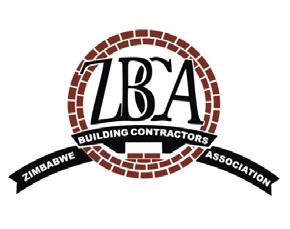








Zimbabwe Building Contractors Association (ZBCA) is a distinguished non-profit making national organisation established in 1985, dedicated to representing emerging building contractors across key sectors including Building Construction, Civil Engineering, Electrical Engineering, and Structural Engineering. The Association also plays a pivotal role in registering Tradesmen within these fields, ensuring their skills and professionalism are recognised. Additionally, it registers suppliers and service providers as Associate Members, fostering a comprehensive network within the construction industry. The core mission of ZBCA is to uphold the highest standards of workmanship and ethical practices among its members. As a member-driven association, ZBCA thrives on active participation from its members, who contribute through involvement in various structures such as Regional Committees and specialized portfolios. This provides strategic guidance and direction to the Secretariat. With a robust presence nationwide, ZBCA boasts of a diverse membership spread across four key administrative regions: Northern Region, Southern Region, Central Region and Masvingo Region. This extensive network reinforces the association’s commitment to advancing professionalism,












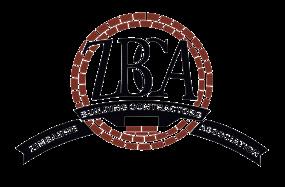










































Delivering high-performance civil, mechanical, and electrical solutions since 2005, built on integrity, safety, and sustainability.












Engineering: Civil Engineering, Project Management, Electrical Engineering, Mechanical Engineering




Procurement: Strategic procurement services for clients.

Construction: Road construction, Infrastructure development, Public lighting installation


Management: Overall management of construction projects.
Specialized Services: Smart water metering, Traffic light signaling systems, Public lighting systems
Products and Equipment: Asphalt Production




Plant Hire: A range of construction equipment is available for hire. 21 Saint Quintin Avenue, Eastlea South Harare, Zimbabwe +263 4 747
info@syvern.com


PRESIDENT’S CORNER
CHIEF EXECUTIVE OFFICERS DESK
INTRODUCTION: WHO WE ARE
WOMEN’S DESK
EMPOWERING ZIMBABWE’S YOUTH
EMPOWERING PERSONS WITH DISABILITIES
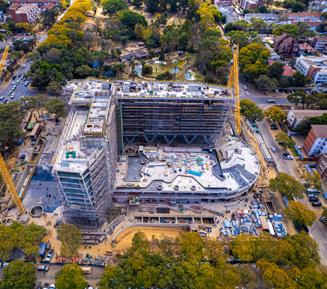
ZBCA REGIONAL CONSTRUCTION SUMMIT
CSR INITIATIVES
ZBCA AND PRAZ’S STRATEGIC PARTNERSHIP TO SUSTAINABILITY
STREAMLINING SUPPLIER REGISTRATION WITH PRAZ
ZIDA: MAKING DOING BUSINESS IN ZIMBABWE EASY
CONSTRUCTION INDUSTRY PENSION FUND
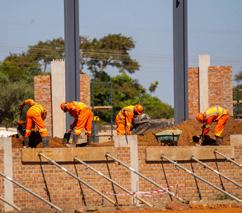
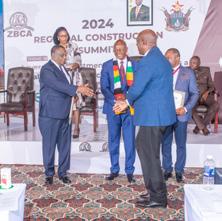


NATIONAL EMPLOYMENT COUNCIL FOR THE CONSTRUCTION INDUSTRY IN ZIMBABWE
ZBCA SET TO LAUNCH ACADEMY TO PIONEER INDUSTRY
UNLOCKING OPPORTUNITIES IN ZIMBABWE’S CONSTRUCTION INDUSTRY
GUIDELINES FOR REGISTRATION REQUIREMENTS
DIRECTORY OF MEMBERS, MINISTRIES AND AFFILIATES


While every effort has been made to ensure the accuracy of its content, neither editor nor publisher can be held responsible for any omissions or errors: or for any misfortune, injury, or damages which may arise there-of. No Part of this magazine may be reproduced or transmitted in any form or by any means electric or mechanical, including photocopying or recording.
Published by:

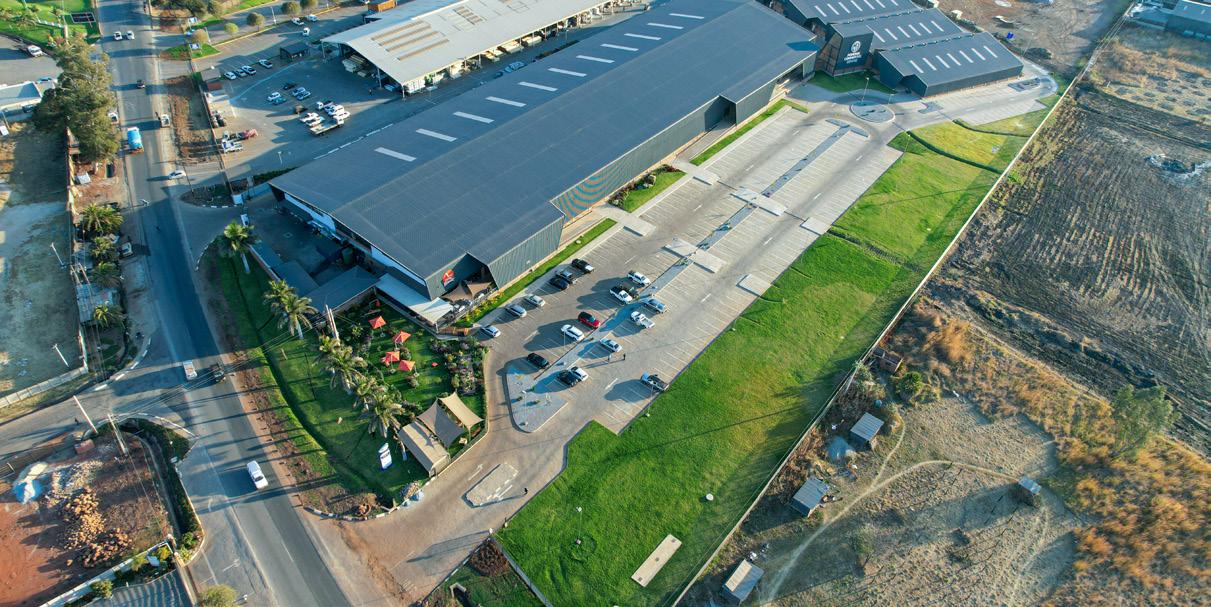
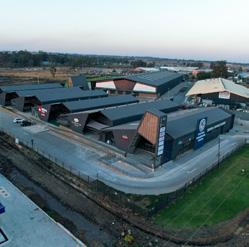









Credsure offers a full range of bonds and guarantees to help secure your business ventures. Our offerings include:
• Bid Bonds – Secure your tender submissions.
• Performance Bonds – Guarantee the successful completion of your projects.
• Advance Payment Bonds – Protect funds advanced to contractors.
• Retention Bonds – Release retention money to contractors without delay.

In a world where, brick by brick, women are reshaping industries, the Zimbabwe Building Contractors Association’s Women’s Desk stands as a beacon of empowerment and equality in the construction sector. Established with a clear vision to emancipate women from traditional gender roles and provide equitable opportunities, the Women’s Desk is more than just a support platform; it’s a movement dedicated to transforming perceptions and fostering women leaders in construction.
Construction has historically been a male-dominated industry. Women, despite their talents and ambitions, often face barriers ranging from limited access to training to a lack of representation. Recognizing these challenges, the Zimbabwe Building Contractors Association launched the Women’s Desk to champion women’s rights, facilitate skill development, and ensure that women have a voice in shaping Zimbabwe’s built environment.
The Women’s Desk offers mentorship programs that connect experienced women professionals with newcomers, creating a nurturing environment of knowledge sharing. It organizes workshops on technical skills, leadership, business management, and safety standards, empowering women to excel and take on leadership roles. At the same time, the Zimbabwe Building Contractors Association (ZBCA) embraces the He4She philosophy, encouraging men in the industry to become active allies in empowering women.
By fostering a culture where men support and champion gender equality, the association ensures that empowerment is a collective effort. Men are encouraged to mentor women, advocate for fair opportunities, and challenge stereotypes because when men stand with women, the power of empowerment multiplies. Together, through He4She, the ZBCA is building a future where everyone, regardless of gender, works side by side to construct not just buildings, but a more inclusive and equitable industry.
Across Zimbabwe, women are breaking new ground. From leading construction projects to establishing their own firms, their stories inspire others to pursue dreams in construction. The Women’s Desk highlights these successes, showcasing that with support and determination, women can conquer any challenge.



If you’re a woman with a passion for building, designing, or managing construction projects, now is the time to re-engage with the Women’s Desk. Whether you’re starting out or seeking to elevate your career, thisplatform is your gateway to growth, support, and empowerment
Why Join?
Networking Opportunities: Connect with industry leaders and peers. Training & Development: Access to specialized workshops tailored for women. Advocacy & Support: Be part of initiatives that promote gender equity. Leadership Development: Prepare to take on roles that shape Zimbabwe’s future.
Together, We Build a Future of
The Women’s Desk isn’t just about construction; it’s about constructing a future where women are equally represented, valued, and empowered. Your skills, your ideas, and your voice matter. Join us in rewriting the narrative because when women build, they build stronger, brighter communities. Reclaim your space. Reignite your passion. Join the Women’s Desk today and be part of Zimbabwe’s construction revolution.
Remember: The foundation of progress is laid by those willing to stand together. Let’s build that future brick by brick, woman by woman.


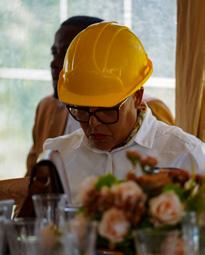













In a groundbreaking milestone for Zimbabwe’s construction industry, the Zimbabwe Building Contractors Association (ZBCA) hosted its inaugural Women in Construction and Awards Conference on August 22nd 2025 at Moongate Restaurant Belgravia, Harare, an event that marks a new chapter of empowerment, innovation, and gender inclusivity within the sector.
Under the inspiring theme “Embrace Change, Cultivate Growth, and Transform,” the conference drew industry leaders, government officials, and aspiring women entrepreneurs committed to shaping a more inclusive future for construction in Zimbabwe.
The event was graced by distinguished guests, including the Honorable Minister Senator Monica Mutsvangwa, Minister of Women Affairs, Community and Small and Medium Enterprise Development, who delivered an empowering keynote address emphasizing the importance of women’s participation and leadership in construction and related industries.
The Deputy Minister of the Ministry of National Housing and Social Amenities, Honorable Musa Ncube, also attended, reaffirming government support for gender diversity and sustainable development in the sector.
The Chairlady of ZBCA Women’s Desk, Miss Portia Mariga, played a pivotal role in organizing the conference, championing initiatives that promote women’s empowerment and industry growth.
Throughout the day, attendees engaged in dynamic panel discussions that addressed critical issues facing women entrepreneurs and industry players.



The first panel featured prominent speakers such as Rufaro Muzangaza, Head of Credit at BancABC, Munyaradzi Maziwisa, Projects Manager at NBS, and Ruth Gorerokufa the Service Manager from ZB Bank.
They explored vital topics including access to finance, business growth opportunities, and financial literacy-key barriers that women entrepreneurs often encounter. Their insights provided practical strategies to empower women to navigate financial landscapes confidently, fostering their entrepreneurial ventures within the construction sector.
The second panel delved into safety, security, and legal considerations, moderated by Inspector Pauline Dube, Assistant Provincial Cordinator PVFU, Harare Province from the ZRP Victim Friendly Unit, with contributions from Mutsa Chivandire of Chivandire and Zinto Law Chambers, Dr. Betty Nyereyegona, Acting Director for Occupational Safety and Health- NSSA, and Professor Vongai Nyawo, Director Research and Postgraduate Studies from Great Zimbabwe University.
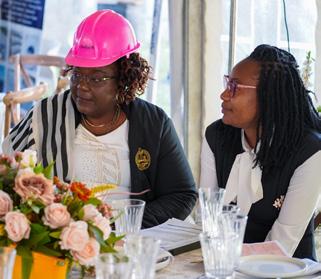
Discussions centered on industry safety standards, victim support mechanisms, and legal frameworks that underpin a secure working environment for women and all industry stakeholders.
Adding to the conference’s richness, Odiline Kava from Vakoma Business World delivered an engaging presentation on grooming and business etiquette, emphasizing professionalism and soft skills essential for success in construction and entrepreneurship. Joyline Murekachiro, Zimbabwe’s immediate past president of the Real Estate Institute, shared valuable insights on real estate investment and estate planning, highlighting the importance of strategic asset management for women entrepreneurs and industry leaders.
The event also celebrated entrepreneurial success stories, with Engineer Silvern Chisewe from Syvern Construction and Mrs. Cheneso Musara from Majorcon Precast sharing their journeys to success. Their narratives underscored the significance of resilience, innovation, and strategic partnerships in overcoming industry challenges and achieving sustainable growth.


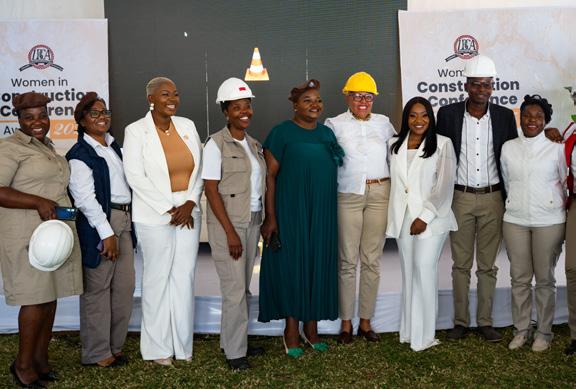

The conference not only fostered meaningful dialogue but also recognized outstanding contributions through awards that celebrated women trailblazers and industry champions.
It was a resounding affirmation that embracing change and cultivating growth are essential steps toward transforming Zimbabwe’s construction landscape into a more inclusive, innovative, and resilient sector.
As the day concluded, participants left inspired and motivated, carrying forward the message that empowering women is fundamental to the industry’s progress.
The Zimbabwe Building Contractors Association’s inaugural Women in Construction and Awards Conference has set a powerful precedent, signaling a committed move toward gender equality and industry transformation.
With continued collaboration and dedication, Zimbabwe’s construction sector is poised for a future where diversity drives excellence and sustainable development.


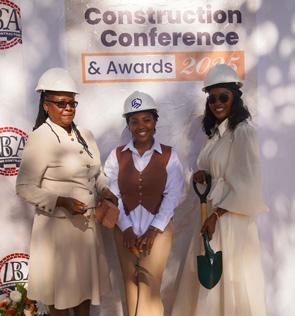


Zimbabwe’s youth constitute the majority of its population, embodying the nation’s potential for growth, innovation, and resilience. Yet, despite this demographic advantage, many young Zimbabweans face significant challenges, most notably limited access to opportunities, unemployment, and the pervasive threat of drug and substance abuse.
Addressing these issues is not only a moral imperative but also a strategic necessity for sustainable national development.
Recognizing this, the Zimbabwe Building Contractors Association (ZBCA) has taken proactive steps through its Young Contractors Desk, a dedicated platform that champions the interests of young professionals in the built environment. Beyond fostering professional growth, the initiative seeks to empower youth holistically, providing skills, mentorship, and platforms for meaningful participation in the construction sector and beyond.
Youth empowerment is fundamental to achieving inclusive growth. When young people are equipped with relevant skills and opportunities, they become drivers of economic development, innovation, and social stability. Conversely, neglecting youth development can lead to increased unemployment, social unrest, and the entrenchment of harmful behaviours such as drug abuse.
ZBCA’s approach underscores the importance of creating pathways out of poverty and marginalization. By partnering with tertiary institutions, the association is working to develop specialized courses tailored to the needs of young people, courses that not only impart technical skills but also foster entrepreneurial mindsets and civic responsibility.
These programs aim to take youth off the streets and away from negative influences, offering instead avenues for productive and sustainable livelihoods.
Addressing youth challenges requires a concerted effort across multiple sectors government, the private sector, civil society, and educational institutions must collaborate strategically.
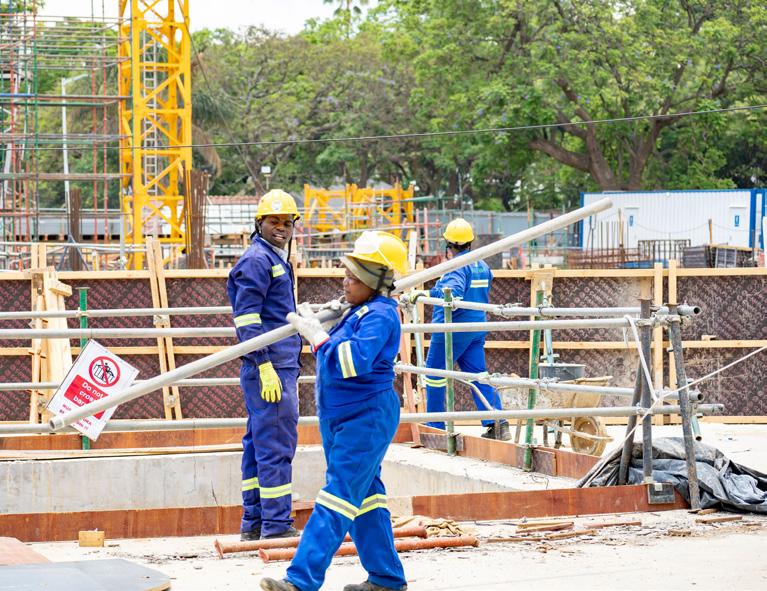





Email: sales.sfh@gmail.com
ZBCA’s partnerships exemplify this approach, aligning efforts with national development goals and the Sustainable Development Goals (SDGs).Specifically, these initiatives contribute to SDG 4 (Quality Education), SDG 8 (Decent Work and Economic Growth), and SDG 16 (Peace, Justice, and Strong Institutions). By providing skills training, employment opportunities, and mentorship, ZBCA is helping to build resilient communities where youth are active agents of change.
One of the most pressing issues facing Zimbabwean youth is drug and substance abuse, which destroys lives, families, and communities. The association recognizes that empowerment extends beyond skills; it encompasses fostering healthy lifestyles and resilience. Through awareness campaigns, mentorship programs, and collaborations with health and social services, ZBCA aims to create supportive environments where young people can thrive free from the shackles of addiction.




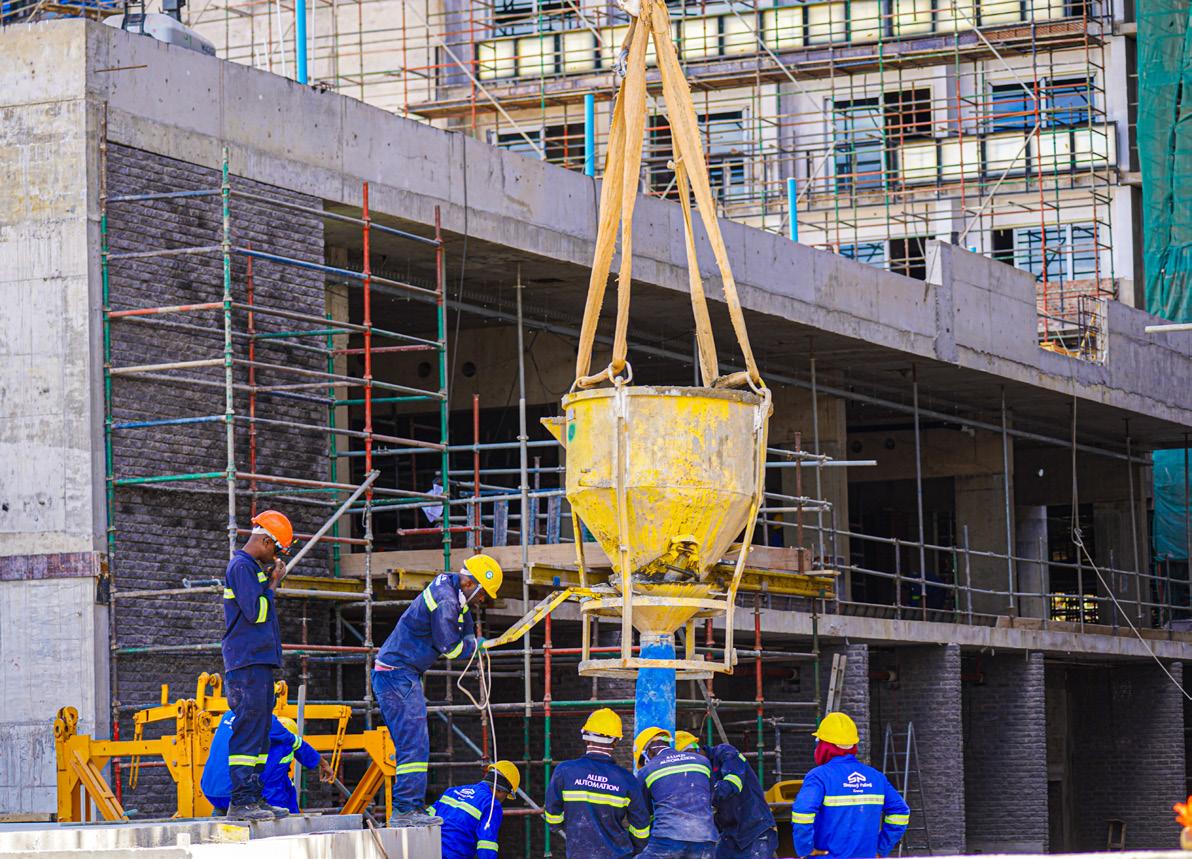
The strides made by ZBCA highlight the transformative power of youth-focused initiatives, but more comprehensive, multi-sectoral efforts are needed. Government policies that facilitate access to education and employment, private sector investments in youth development, and community-led initiatives are vital ingredients in this collective endeavour.
Zimbabwe’s future depends on its young people dynamic, innovative, and resilient. By investing in their development today, the nation paves the way toward sustainable growth, social cohesion, and a prosperous Zimbabwe that leaves no youth behind.
Empowering young Zimbabweans is not merely an act of social justice; it is a strategic investment in the nation's sustainable development. Through collaborative efforts exemplified by ZBCA’s programs and partnerships, the country can harness the full potential of its youth, transforming challenges into opportunities and building a resilient, inclusive future for all.
Zimbabwe’s commitment to fostering an inclusive society is enshrined in its national policies on disability. The Disability Policy underscores the importance of creating an environment where persons with disabilities (PWDs) are recognized as integral members of society, with equal rights and opportunities to participate fully in economic, social, and political life. It emphasizes the need to dismantle barriers, both physical and social, that hinder their empowerment and to promote their independence and selfsufficiency.
The Zimbabwean disability policy advocates for empowerment through education, skill development, and economic participation. It recognizes that persons with disabilities possess inherent potential and deserve the opportunity to contribute meaningfully to national development.
This includes fostering an environment where PWDs can establish and run their own enterprises, thereby creating a level playing field that respects their rights and dignity. Such initiatives are crucial because they challenge stereotypes that often marginalize PWDs, portraying them solely as recipients of charity rather than active agents of change.
The importance of enabling persons with disabilities to own and operate their own companies cannot be overstated. When PWDs become entrepreneurs, they gain financial independence, boost their self-esteem, and serve as role models within their communities. Entrepreneurship provides a pathway out of dependency, reducing societal reliance on social grants and support systems.It also shifts perceptions, transforming society’s view of PWDs from individuals seen as objects of pity or beggars to empowered contributors to the economy and society at large.
Furthermore, encouraging PWDs to establish their own businesses plays a vital role in eradicating negative stereotypes and misconceptions. Not everyone is born disabled; many conditions arise due to accidents, illnesses, or mishaps that can happen to anyone. This reality highlights the importance of not stereotyping or stigmatizing persons with disabilities. Instead, society should recognize that disability is often a matter of circumstances and environment, not a reflection of inability or worth.
Dispelling this myth is essential to fostering an inclusive culture that values diversity and promotes equal opportunities. In this context, the Zimbabwe Building Contractors Association (ZBCA) is taking a significant step with its upcoming launch of a disability desk aimed at empowering persons with disabilities to become entrepreneurs within the built environment sector.
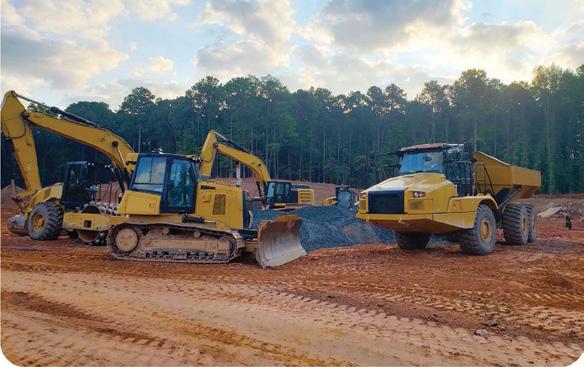
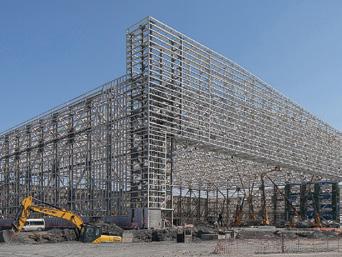









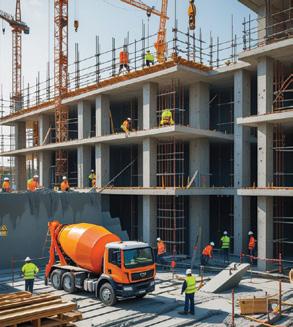
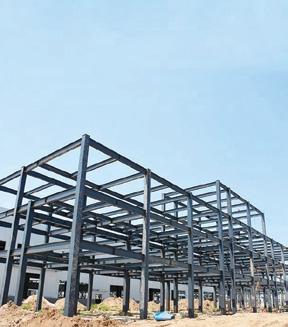
•


This initiative is not only about economic inclusion but also about societal transformation, removing PWDs from the streets where they are often viewed as helpless and instead positioning them as vital contributors to the nation’s development. When PWDs are given the tools, training, and support to run their own companies, they challenge the narratives that limit their potential.
The concept of "disability inability" is a misconception that needs urgent correction. Many persons with disabilities possess skills, talents, and resilience that make them capable of excelling in various fields when given the right opportunities.
By fostering an entrepreneurial ecosystem that accommodates their needs, Zimbabwe can harness this potential, leading to a more diverse, innovative, and resilient economy.
Empowering PWDs through entrepreneurship aligns with Zimbabwe’s broader development goals promoting inclusivity, reducing poverty, and building a society where everyone has a voice. It demonstrates that disability should not be a barrier to success but rather a different pathway to contributing meaningfully to society.
For this to be effective, there must be a collective effort involving government policies, private sector support, and societal attitude shifts to ensure that persons with disabilities are not just seen but truly valued and empowered.
In conclusion, creating opportunities for persons with disabilities to own and run their own businesses is a vital step towards societal equality and sustainable development.
It challenges stereotypes, promotes dignity, and fosters an environment where everyone, regardless of physical circumstance, can thrive. Zimbabwe’s move to establish a disability desk within the Zimbabwe Building Contractors Association exemplifies this commitment, showing that when society invests in inclusion, it benefits all.

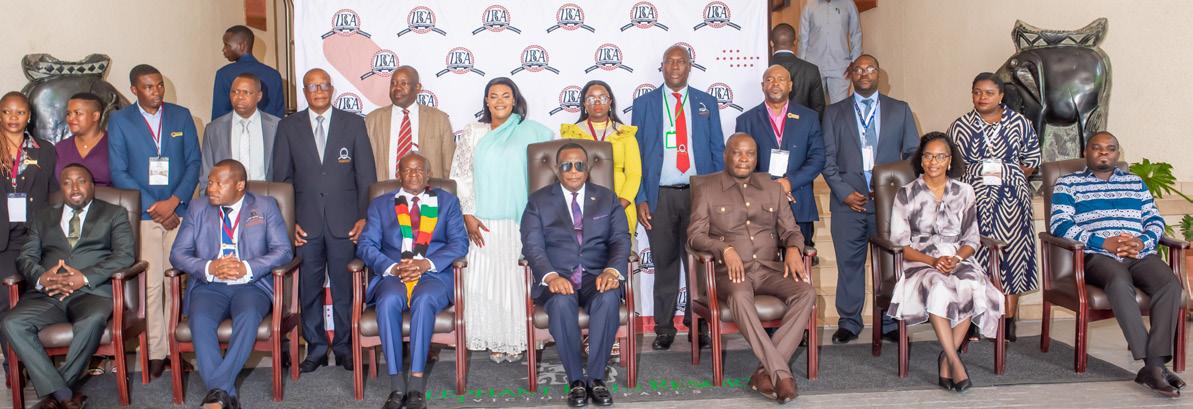
Last year, the Zimbabwe Building Contractors Association (ZBCA) hosted a pivotal regional construction summit that brought together industry leaders, government officials, and experts from across Southern Africa to deliberate on the critical role of infrastructure in driving economic development.
Under the theme “Leveraging Investment in Infrastructure as a Catalyst for Economic Growth,” the summit underscored the importance of regional collaboration, innovative financing, and sustainable construction practices in realizing shared development goals within the Southern African Development Community (SADC).
The summit was distinguished not only by high-level keynote addresses but also by engaging panel discussions that explored diverse facets of infrastructure development.
Notably, prominent figures such as Mr. Musa Shangase, Immediate Past President of Master Builders South Africa, and Mr. Edgar Siacakoma, President of the National Council for Medium and Small Scale Contractors Zambia and Board Member of the Zimbabwean Construction Council, shared insights on opportunities across various sectors, including water supply infrastructure, and evaluated models of infrastructure financing.
A core component of the summit was the panel discussion analyzing the return on investment (ROI) that infrastructure projects generate for national economies. Experts examined how strategic infrastructure investments bolster GDP growth, foster job creation, and stimulate local economic activities.
Participants also explored the vast opportunities present in different sectors, emphasizing the importance of harnessing regional synergies to unlock growth potential.
The summit also featured a dedicated session on the role of pension funds in infrastructural development, highlighting innovative investment strategies and financing models such as Public-Private Partnerships (PPPs).
These models, including legal frameworks and risk-sharing mechanisms, were showcased through successful case studies from Zimbabwe and other regions, demonstrating how collaborative efforts can accelerate infrastructure projects while mitigating risks.

The Vice President of Zimbabwe, Honourable Gen (Rtd) Dr. C.D.G.N Chiwenga, delivered a compelling keynote address that resonated throughout the summit. His speech emphasized that infrastructure investment is essential for turning the SADC region into an industrial hub aligned with the SADC Industrialization Strategy and Zimbabwe’s Vision 2030 of achieving an upper-middle-income economy. He called for a “Brick upon Brick” approach—urging regional stakeholders to foster unity, collaboration, and shared progress.
The Vice President highlighted Zimbabwe’s notable achievements, including the Masvingo-Beitbridge Road and the Mbudzi Interchange, as exemplars of the country’s construction prowess.
He stressed that a unified regional construction industry is vital for addressing infrastructure deficits, enhancing trade, and supporting industrialization. The importance of adopting technological innovation, embracing Education 5.0, and prioritizing environmentally sustainable energy sources was emphasized, reflecting the government's commitment to green and inclusive growth.
A significant aspect of his speech was the call for inclusivity, particularly in ensuring accessibility for persons with disabilities. Recognizing that approximately 9.5% of Zimbabwe’s population comprises individuals with disabilities, the Vice President urged stakeholders to prioritize accessible design and full societal participation in infrastructure projects.

Zimbabwe Building Contractors Association (ZBCA)
The summit also reinforced the crucial role of sustainable practices and environmental conservation in construction. The region’s Renewable Energy and Energy Efficiency Strategy was highlighted as a regional initiative to promote clean energy use within infrastructure development, further aligning with global sustainability goals.
Participation in this summit was enriched by members from neighbouring countries such as South Africa and Zambia, representing similar industry bodies committed to advancing infrastructure development across the region. Their presence underscored the importance of regional cooperation in addressing shared challenges and harnessing collective opportunities.
Attending gatherings like the ZBCA Regional Construction Summit offers invaluable opportunities for networking, knowledge exchange, and strategic partnerships.
These platforms foster dialogue among industry leaders, policymakers, and financiers, enabling the formulation of innovative solutions to infrastructure challenges. They also serve as a catalyst for regional integration, economic resilience, and sustainable development.





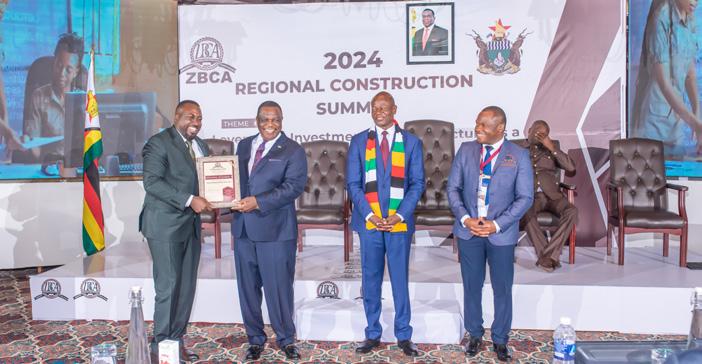
In conclusion, the Zimbabwe Building Contractors Association’s summit exemplified how collaborative efforts and strategic investments in infrastructure are fundamental to transforming economies and improving livelihoods across the SADC region.
As we move forward, such summits will remain vital for shaping resilient, inclusive, and sustainable infrastructure that supports regional growth and development.
The insights and partnerships cultivated during this gathering will undoubtedly continue to propel the region towards a prosperous future, demonstrating the power of collective action in building a better tomorrow.
Corporate Social Responsibility (CSR) has become an integral component of modern business strategy, transcending traditional notions of profit making to encompass the broader responsibility of organizations to positively impact society and the environment.
Implementing effective CSR initiatives not only demonstrates an organization’s commitment to ethical practices but also significantly enhances its reputation, fostering trust and loyalty among stakeholders. In today’s interconnected world, consumers and partners increasingly favour organizations that show genuine concern for societal issues, making CSR a vital tool for long-term sustainability and growth.
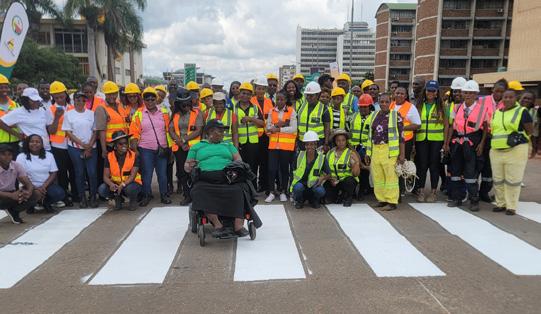
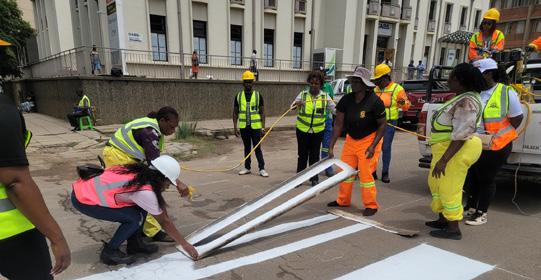
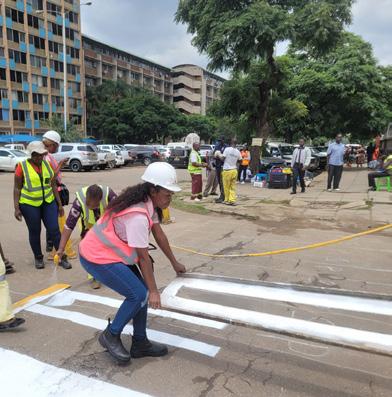
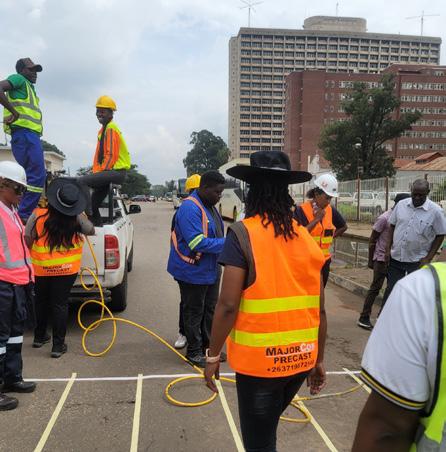
CSR manifests in various forms, each contributing uniquely to societal development and organizational image. Philanthropic CSR involves donations and charitable contributions aimed at supporting community needs. Ethical CSR emphasizes maintaining fair labour practices, environmental stewardship, and transparency within organizational operations.
Environmental CSR focuses on reducing ecological footprints through sustainable practices such as waste reduction, energy efficiency, and conservation efforts. Community engagement initiatives, like supporting local infrastructure or health programs, foster stronger ties between organizations and the communities they serve. Additionally, employee volunteering programs and partnerships with social enterprises exemplify the diverse ways organizations can embed CSR into their core activities.
The Zimbabwe Building Contractors Association (ZBCA) has long recognized the importance of CSR as a strategic tool for societal development and organizational reputation.
As part of its commitment to fostering safer, healthier, and more inclusive communities, ZBCA has actively participated in various CSR initiatives aimed at improving public spaces and promoting safety awareness. For instance, in 2025, the association proudly contributed to the beautification and safety of urban environments through several impactful projects.
One notable initiative involved painting road markings at critical pedestrian crossings to enhance visibility and safety. The association undertook the painting of zebra crossings at the corner of Julius Nyerere and Second Street, as well as at the intersection of Corner Ahmed Ben Bella Avenue and S.V Muzenda, and painting of Kerbstones of Corner Samora Machel and First Street in Harare.
These initiatives aim to reduce accidents, promote road safety, and demonstrate the construction sector’s commitment to community well-being. Additionally, the association’s Women’s Desk spearheaded the painting of kerbstones at the corner of Samora Machel and First Street, further contributing to urban aesthetics and pedestrian safety.
These projects exemplify how CSR activities extend beyond mere corporate charity; they actively contribute to creating safer, more accessible urban environments.
Such initiatives also serve to elevate the image of the construction industry, showcasing its role as a key player in societal development rather than just a service provider. When organizations visibly invest in community welfare, they foster goodwill, increase stakeholder confidence, and position themselves as responsible corporate citizens.

Transport and Construction
MACHINERY AVAILABLE
Graders
Dozens
Front end loaders
Escavators
Lowbeds
Pneumatic rollers
Vibratory roller
Tippers
Combined chip spreader
Bitumen dispencer
EMAIL NOW
nestanetpvtltd1998@gmail.com
citybuidershardware@gmail.com
Furthermore, ZBCA has strengthened its commitment to social responsibility through formal partnerships.
In 2025, the association signed a Memorandum of Understanding (MoU) with the Procurement Regulatory Authority of Zimbabwe (PRAZ). This partnership aims to integrate CSR into procurement processes, encouraging members and industry players to prioritize socially responsible projects and initiatives. By aligning procurement practices with CSR principles, ZBCA and PRAZ are promoting ethical standards, transparency, and communityfocused development within the construction sector.
The significance of CSR in today’s business landscape cannot be overstated. It helps organizations build a positive reputation, differentiate themselves from competitors, and foster long-term relationships with clients, communities, and government agencies. Moreover, CSR initiatives contribute to sustainable development goals, such as building resilient infrastructure (SDG 9), promoting health and safety (SDG 3), and creating sustainable cities and communities (SDG 11).
In conclusion, CSR is much more than a corporate obligation; it is a strategic approach that benefits organizations, communities, and society at large. The Zimbabwe Building Contractors Association’s active involvement in community projects, safety enhancements, and strategic partnerships exemplifies how construction firms can leverage CSR to transform their image and contribute meaningfully to societal progress. As we look toward the future, embracing CSR will remain vital for organizations seeking to build trust, foster sustainable development, and elevate their role as responsible corporate citizens.




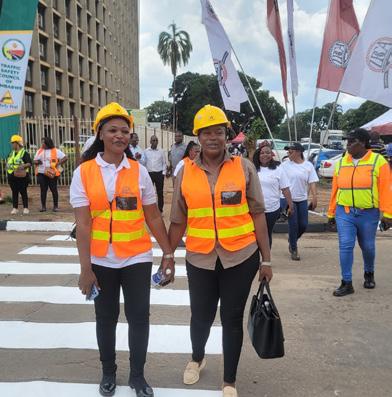
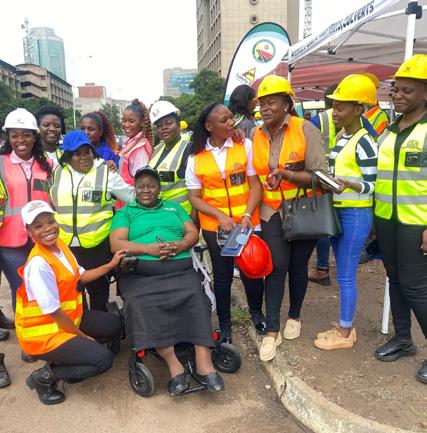

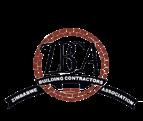
In a landmark move set to redefine corporate social responsibility (CSR) in Zimbabwe, the Zimbabwe Building Contractors Association (ZBCA) and the Procurement Regulatory Authority of Zimbabwe (PRAZ) officially signed a Memorandum of Understanding (MoU), signalling a unified commitment to fostering sustainable development and meaningful community engagement across the nation.
This collaboration embodies a strategic partnership aimed at leveraging the strengths of both organizations to promote Corporate Social Investment (CSI) initiatives that directly benefit local communities. As the construction sector continues to be a vital engine of Zimbabwe’s economic growth, this alliance underscores the importance of integrating community welfare into the core of industry operations.
Building contractors, as key players in infrastructure development, are uniquely positioned to influence positive social change. The partnership with PRAZ, an authority responsible for regulating procurement processes, aims to streamline and prioritize community-focused projects, ensuring that development benefits are equitably distributed and aligned with national sustainability goals.


The significance of this MoU extends beyond mere collaboration; it exemplifies multi-sectoral engagement a holistic approach that brings together government agencies, private sector entities, civil society, and local communities. Such a comprehensive framework fosters shared responsibility and collective action towards sustainable development. By integrating CSR principles into procurement and contracting practices, the partnership encourages transparency, accountability, and ethical standards. These tenets are critical in ensuring that projects not only meet technical and economic criteria but also promote social equity and environmental stewardship.
Promoting Key Tenets of Corporate Social Responsibility
Community Engagement and Empowerment:
At the heart of this initiative lies a commitment to engaging local communities in decision-making processes and empowering them through capacity-building programs, employment opportunities, and infrastructure development. This participatory approach ensures that projects resonate with community needs and foster a sense of ownership and sustainability.
Environmental Responsibility:
Construction projects facilitated under this partnership are expected to adhere to environmentally sustainable practices. This includes minimizing ecological footprints, utilizing sustainable materials, and implementing conservation measures aligning with global standards for environmental stewardship.
Ethical Business Practices:
By reinforcing transparent procurement procedures and ethical standards, the partnership aims to combat corruption and promote fair competition. This creates an environment conducive to responsible business conduct, fostering trust among stakeholders.
Economic Development:
Through strategic investments in local infrastructure and enterprise development, the collaboration seeks to stimulate economic activity, create jobs, and support small and mediumsized enterprises (SMEs). These efforts are vital for reducing poverty and promoting inclusive growth.


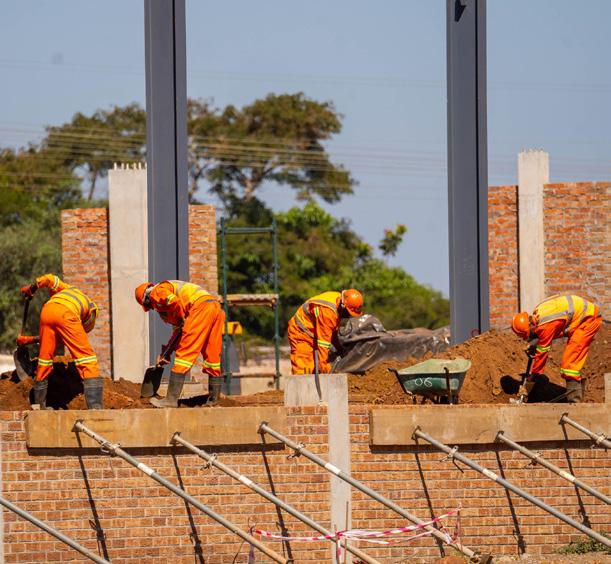

This partnership aligns with Zimbabwe’s national development plans, including Vision 2030, which envisions an empowered and prosperous middle-income society. By embedding CSR into industry practices, the collaboration aims to accelerate progress towards Sustainable Development Goals (SDGs), particularly those related to poverty alleviation, quality education, decent work, economic growth, and reduced inequalities. Furthermore, the initiative sets a precedent for other sectors to adopt similar multi-sectoral, sustainabilityfocused approaches. It exemplifies how strategic partnerships can serve as catalysts for systemic change, fostering a culture of responsible business and community-centric development.
As the MoU takes effect, stakeholders anticipate a series of impactful projects that will serve as models of best practice in community engagement and sustainable development. The success of this partnership hinges on ongoing dialogue, transparency, and a shared commitment to Zimbabwe’s long-term prosperity.
In conclusion, the collaboration between the Zimbabwe Building Contractors Association and the Procurement Regulatory Authority of Zimbabwe marks a pivotal step towards integrating CSR principles into national development efforts. It embodies a forwardthinking approach that recognizes the importance of multi-sectoral engagement in building resilient communities, fostering sustainable growth, and realizing Zimbabwe’s full potential as a thriving, inclusive society.

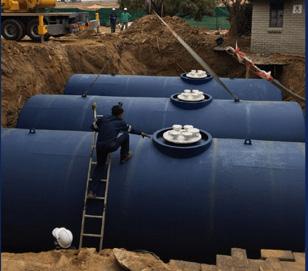
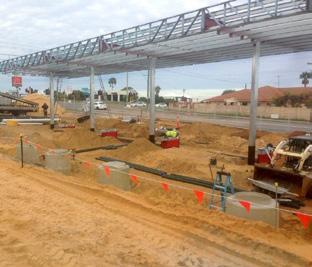




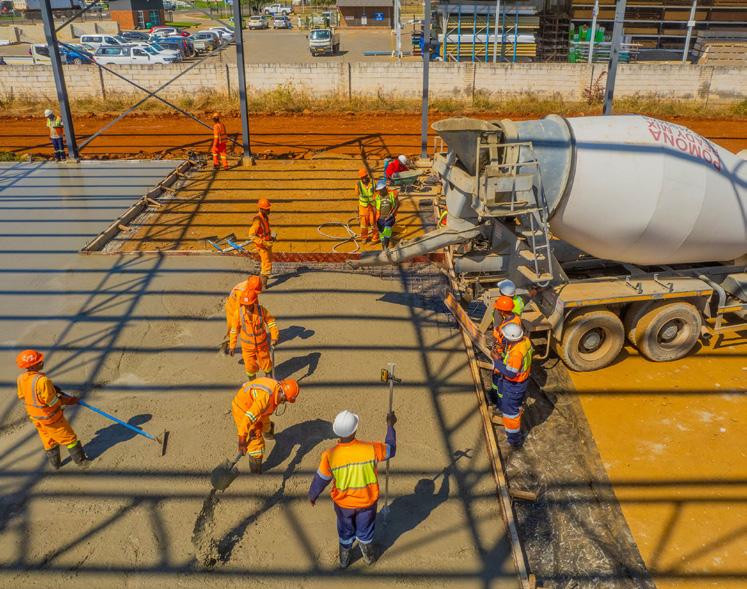



In an era where efficiency, fairness, and transparency are the pillars of good governance, Zimbabwe’s Building Contractors Association (ZBCA) members and prospective members can now access a seamless registration process with the Procurement Regulatory Authority of Zimbabwe (PRAZ).
This digital transformation is designed to create a level playing field for all suppliers and contractors, fostering an environment of integrity and openness in public procurement.
The first step toward participating in Zimbabwe’s public procurement landscape is registering on the Electronic Government Procurement (eGP) System. The process is straightforward, ensuring that contractors and suppliers can quickly and securely become part of the system.
• Access the eGP Portal
Visit https://egp.praz.org.zw (https://egp.praz.org.zw ) and click on the “Signup” button on the landing page. This marks the beginning of your journey toward efficient procurement proceses.
Fill in the required details, including your email address (which will serve as your username), password, security questions, and primary contact information. Accurate data entry here ensures fair and smooth communication throughout your engagement with PRAZ.


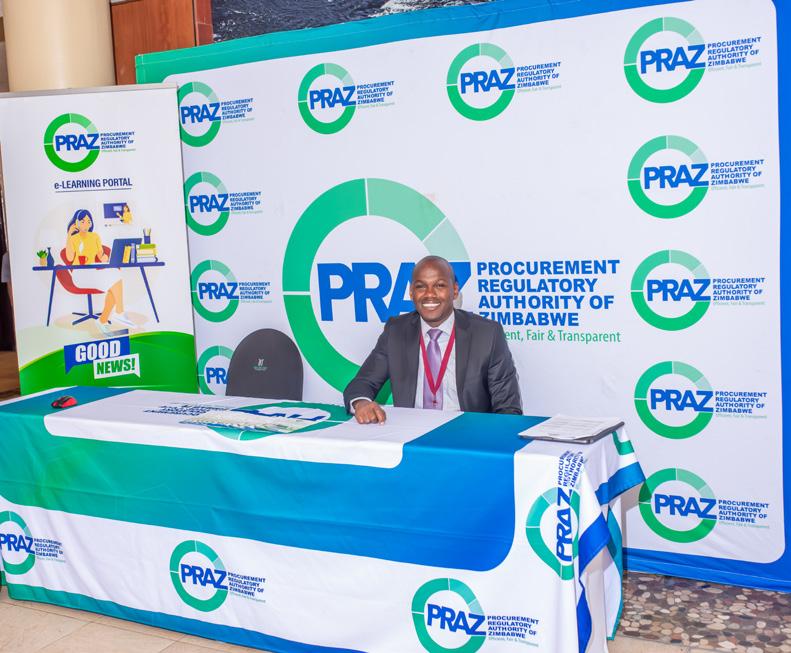
Select “Send OTP to Email” to receive a one-time password (OTP). Enter this code within five minutes to verify your email address, reinforcing transparency and security in the registration process.
• Finalize OTP Verification and Create Your Profile Once verified, you’ll be redirected to set up your supplier organization profile.
Provide your organization’s name, PRAZ registration number (if previously registered), and other essential details. This step ensures that the registration process is fair and that all suppliers are accurately identified. •
Complete your organizational profile by adding director information and shareholding details if applicable. This step promotes transparency and helps PRAZ maintain a fair database of registered suppliers.
Upload relevant documents based on your organization type and confirm the authenticity of your data. This process underpins the integrity of the procurement system, ensuring all participants are fairly represented.
Applying for Category Registration or Renewal
Contractors wishing to participate in specific categories or renew their registration can do so easily through the system:
• Select your desired categories, choose payment modes, and confirm the applicable year.
• Review the payable amounts and proceed to secure your registration via online or offline payment options.
• Upload proof of payment and submit your application for PRAZ’s verification, which typically takes up to 48 hours.
This process exemplifies Zimbabwe’s commitment to a transparent procurement environment where every contractor has a fair chance to compete.
Once registered and approved, contractors can view and download their certificates directly from the PRAZ portal. This feature promotes transparency, allowing stakeholders to verify credentials swiftly.
The move towards digitising supplier registration aligns perfectly with the goals of creating an efficient, fair, and transparent procurement system. For ZBCA members and prospective members, embracing this system means participating in a procurement environment that less risk of corruption, speeds up processes, and ensures equal opportunities for all reputable contractors.
The PRAZ’s eGP system is a vital tool for Zimbabwe’s building contractors. It not only simplifies registration but also promotes integrity in public procurement—building a foundation of trust that benefits the entire construction sector and the nation at large.

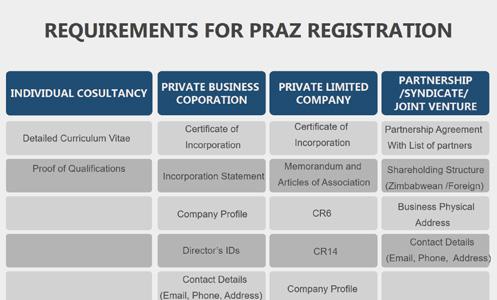
For more information, contact PRAZ at +263 (242) 790 080 or email reception@praz.org.zw. Let’s build Zimbabwe together efficiently, fairly, and transparently!






















































The Zimbabwe Investment and Development Agency (ZIDA) is here to make doing business in Zimbabwe easy. Our work is to promote and facilitate and protect investment in the country as well as advocate for an investor friendly investment environment. Investments facilitated by the Agency include General Investments, Special Economic Zones (SEZs) and Public Private Partnership Projects which are recommended to Cabinet.
To make investors’ entry and establishment easy for General Investment and SEZs, the application process for an Investment Licence, and its subsequent renewal, is done online, on our Do It Yourself Licencing Portal accessible on our website ZIDA DIY Investor Licensing Portal – ZIDA Invest.
Inline with making the doing business in Zimbabwe easy, housed in the Agency is the One Stop Investment Services Centre (OSISC). Here, over 12 different Government Ministries, Departments, and Agencies are represented to assist investors to get licences and permits they need to operate, post licencing by the Agency. Relevant to construction projects, we have in the OSISC the Companies and Intellectual Property Office of Zimbabwe, Ministry of Local Government, EMA, ZIMRA and NSSA.
Applying for an Invest Licence
Applications for an Investment Licence are done on our DIY Portal: zidainvest.com/zida-diy-investor-licensing-portal/. Key requirements to accompany the licence application include a business plan, Zimbabwe company incorporation documents, and identity documents for the shareholders.
Turnaround time for licence processing is within 7 days. The licence is valid for 2 years and is renewable thereafter based on performance by the company in implementing the project.


The Investment Licence unlocks facilitation services of the OSISC. The officials mentioned help investors to comply with the laws and regulations that apply to them. For construction projects, this includes building permits, Environmental Impact Assessments and possibly NSSA inspections and licences.
Officials from ZIMRA, NSSA, Reserve Bank of Zimbabwe and Department of Immigration are also there to help with administrative matters that affect all companies like tax, employer, and employee registration.
All investors, both foreign and domestic, bear a responsibility to obey the laws of Zimbabwe. It is enshrined in Section 13 of the Zimbabwe Investment and Development Agency Act (Chapter 14:38) that there be non-discrimination between foreign and domestic investors. Exceptions are made for sectors of the economy reserved for Zimbabweans in terms of the Indigenisation and Economic Empowerment Act (Chapter 14:33) and a few other special cases.
All investors also bear a legal responsibility to preserve the environment, to maintain accounts in accordance with international accounting standards, and to respect Zimbabwe’s national heritage, customs, and traditions.
During the tenure of the licence, Monitoring and Evaluation officials from ZIDA are empowered in terms of Section 28 of the Zimbabwe Investment and Development Agency Act (Chapter 14:38) to visit licensed investors’ premises and inspect documents related to their project as well as get updates on their operations.
Upon expiry of Investment Licence, an application is made on the DIY Licencing Portal mentioned above. The requirements for renewal include proof of compliance with relevant regulatory authorities and proof of investment made to date. Proof of the former includes licences, permits, and certificates issued by those regulatory authorities. And proof of the latter includes bills of entry showing importation of capital equipment and bank statements showing the inflow of capital into Zimbabwe.
The processing time for the renewal application is the same 7 days as above.
ZIDA’s role in PPP projects is to appraise and submit them to the PPP Committee and recommend their approval to Cabinet. In considering project proposals, ZIDA assesses whether proposals are affordable to the public entity, provide value for money, provide for the appropriate transfer of risk onto the private entity, and are competitive.
The selection of service providers used in PPP projects may not be done in terms of the law of public procurement.
In several cases, PPP projects involve Government or a public body ceding assets to a private player. In this case, the selection would purely be a private commercial agreement.
• Implementation of project as licenced, in accordance with the submitted milestones on initial licencing
• Submission of Investment Update Reports to the Agency updating on progress in attaining key project milestones
• Compliance with sectoral statutory and regulatory obligations
• Compliance with terms and conditions of issuance of licence
You can reach ZIDA via email on info@zidainvest. com, visit our website at zidainvest.com or call us on +263 8677 009 135 for Harare and +263 292 265 243/+263 292 265 345 for Bulawayo.

Engineering & Construction
• Pre Construction Services
• All Civil Works
• Conceptual Budgeting
• Value Engineering
• Life-cycle Analysis
• Scheduling Phase Analysis
• Estimating Design /build
• Construction Management
• General Construction








The Construction Industry Pension Fund (CIPF) and the Zimbabwe Building Contractors Association (ZBCA) are both dedicated to building a resilient and prosperous future for the Construction industry.
As ZBCA members, your commitment to operational excellence is mirrored by our mission to secure the financial well-being of the workforce. Ensuring compliance with the Fund’s rulWes is a cornerstone of this shared vision.
This article highlights not only the critical need for compliance but also the significant benefits that a well-managed pension plan provides to both your employees and your organization.
Understanding the Employer’s Statutory Duties to the Fund.
The Employers’ responsibilities to the CIPF are clearly set out in Zimbabwean law. These duties are rooted in Statutory Instrument S.I 239 of 1992, which establishes the Fund’s rules, Statutory Instrument S.I 61 of 2014, and the Collective Bargaining Agreement of the Construction Industry, Statutory Instrument S.I 45 of 2013.
These regulations bestow on the Employer, the important role of administering the employers and employees’ contributions. Here are your key duties:
• Timely Registration: Every eligible new employee must be registered with the Fund as soon as they are hired or has at least worked for twenty-six comma four (26.4) ordinary hours for your organization.
• Prompt Remittance: You are legally required to deduct both the employee and employer portions for the pension contributions and remit them to the Fund by the 14th of the following month.
• Accurate Records: Maintain and provide the Fund with correct records of employees’ details and contributions.
• Mandatory Reporting: Even if you have no contributions to remit in each month, you must still submit a “nil” return. This ensures your records are always up to date. You can submit these via email at contributions@cit.co.zw or as hard copies.
• Updating Information: communicate any changes to Employer KYC information.
Compliance a Cornerstone of Your Business
Compliance with the Fund’s rules is more than a regulatory obligation; it’s a commitment to your team’s security and your company’s integrity. Failure to adhere to these rules can lead to serious consequences, including financial penalties and legal action. Here are the most common issues to avoid:
• Failure to Submit Monthly Returns: Even during periods of no contributions, a “nil” return is mandatory. This simple administrative step prevents the Fund from treating the absence of a return as a late payment, thus avoiding unnecessary penalties.
• Late and Non-Remittance of Contributions:
Contributions must be remitted by the 14th of the following month. Late payments incur penalties and, more importantly, they deprive your employees’ savings of valuable investment growth.
• Incomplete or Inaccurate Member Data: Errors in names, national IDs, date of births, or contribution rates can cause significant delays when a member needs to access their benefits. Providing accurate and up-to-date information is crucial.
• Delayed Registration of New Employees: The moment a new employee with a designated industry trade joins your team, they become a compulsory member of the Fund. It is your responsibility to register them with the CIPF promptly. A delay in registration means they miss out on valuable months, or even years, of retirement savings and that the Employer shall be solely responsible for such contributions together with late payment interest from the effective date.
Pension Compliance and the Benefits for Your Business and Employees.
Adhering to the rules is a win-win scenario that creates a strong foundation for both your company and your employees.
For your employees, the pension fund provides a robust safety net and a path to financial stability:
• Financial Security in Retirement: The primary benefit is a reliable income source for members when they retire.
• Death and ill-health Benefits: The Fund provides crucial financial support to a member’s family in the event of their death or retirement due to ill health.
• Housing and Micro-Loan Schemes: The CIPF is actively exploring and implementing innovative solutions, such as members micro mortgages and loan schemes, funeral cash plan to help members meet short-term financial needs and invest in personal projects. These initiatives are specifically designed to empower members during periods of temporary unemployment.
• A Valuable Savings Platform: The Fund’s investment growth ensures that member contributions earn competitive returns, surpassing what they might achieve on their own.
For your business, compliance translates directly into operational stability and a stronger reputation:
• Avoidance of Penalties: Timely and accurate submissions protect your company from costly penalties and interest charges.
• Talent Attraction and Retention: A well-managed pension plan is a key part of an attractive benefits package. It helps you attract and retain skilled workers in a competitive industry.
• Enhanced Corporate Image: Demonstrating a Commitment to your employees’ financial future strengthens your reputation with clients,

partners, and the wider community. It shows that you are a responsible and caring employer.
• Reduced Administrative Burden: Proactive compliance and clean data submissions reduce administrative queries and streamline your internal processes.
• Triangular investments: the Fund’s investments profile includes property and money market placements among others. In property investments, the Fund is involved in projects to which preference for contractors is given to compliant sponsoring employers of the Fund, this ensures that there is guaranteed employment of the Industry.
Through money market placements, Employers can access funding from the market for their projects.
The Construction Industry Pension Fund is more than a service provider; we are your partner in building a better future for the construction industry.
We urge all ZBCA members to prioritize pension compliance and to use the available resources and support from our team. Together, we can ensure every worker has a secure foundation for tomorrow.
Email contributions@cit.co.zw Website www.cit.co.zw
Phone B Kunyeti 0773 810 125 B Marufu 0714 593556 and A Muzire 0715 419 149







PREAMBLE - National Employment Councils were known as Industrial Councils and have been in existence since time immemorial. National Employment Councils are institutions which are governed in terms of the Labour Act, Chapter 28:01 and enjoy delegated authority from the Ministry of Public Service, Labour, and Social Welfare. National Employment Councils are collective bargaining chambers where the employers’ party and the employees’ party converge to deliberate on the conditions of service for their respective sectors of the economy. The National Employment Council for the Construction Industry is constituted by the employers’ party and the employees’ party.
The employers’ party is represented by CIFOZ and ZBCA and the employees’ party is represented by ZCATWU.
The Ministry of Public Service, Labour, and Social Welfare saw it prudent and expedient to devolve powers on collective bargaining to specific constituencies in order to empower the Employer Organizations and the Trade Union(s) to manage their industry.
Section 65, (5) of the Constitution of Zimbabwe Amendment (No. 20) Act of 2013 stipulates that every employer, employee, Trade Union or employer's organization has the right to engage in Collective Bargaining except formember of the security services.
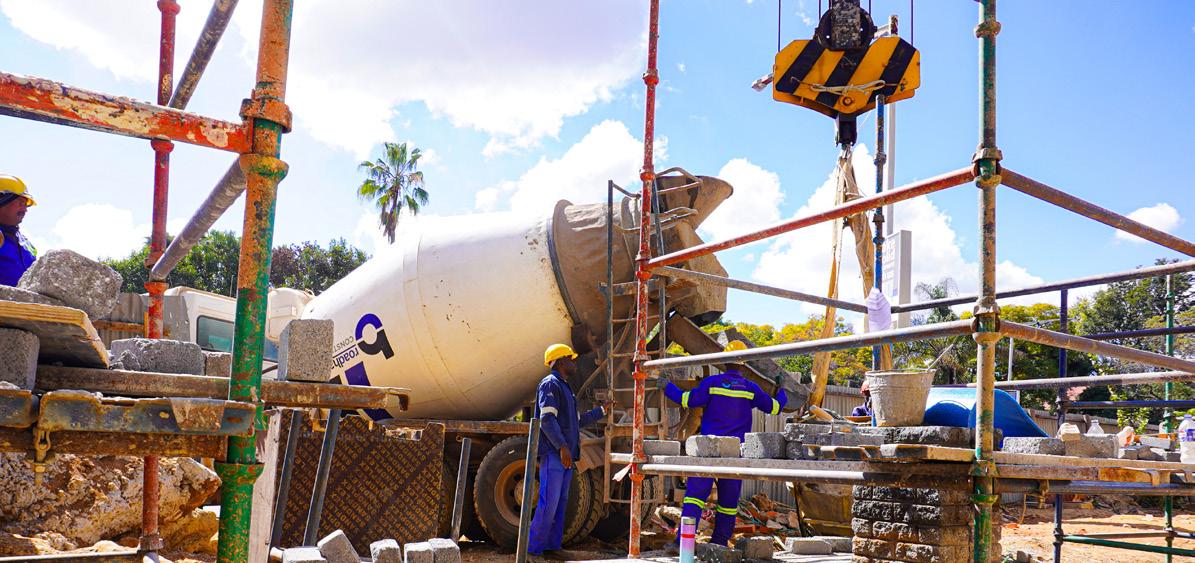
The two parties, i.e. the employers’ organization and the Union negotiates for the conditions of service for the industry, interalia, rates of remuneration, the minimum wage, overtime, vacations, number of hours, occupations, protective clothing, skilled workers’ tools, code of conduct and grievance procedure etc.
It is a requirement in terms of Statutory Instrument 45 of 2013 which governs the construction industry for all employers to register with the N.E.C. All employers and employees shall comply with the Collective Bargaining Agreement and regular site inspections are carried out by Designated Agents in order to ensure that companies are compliant.
Designated Agents are appointed and are empowered by the Registrar of Labour to redress or attempt to redress any disputes or unfair labour practices occurring in the industry.

An employer in the Construction Industry shall grant a Designated Agent reasonable access to his employees for the purpose of advising and assisting them in relation to their rights of employment. Grant reasonable access to his premises and to the books, records and other documents for the purpose of examining and ascertaining matters relating to or affecting the employment of employees.
Enter upon any premises of an employer in the industry for the purpose of conducting any search therein where there is reasonable grounds of believing that such entry or search is necessary for the prevention, investigation or detection of an offence in terms of the Labour Act.
Any person or employer who hinders or obstructs a Designated Agent of an Employment Council in the exercise of his powers or the performance of his duties in terms of the Labour Act shall be guilty of an offence.
It is important to note that contractors in the industry shall not operate illegally, therefore, registration takes precedence before commencing operations.

Upon registration the contractor shall submit monthly returns and failure to comply will result in cancellation of the company. In the event that the company is dormant the company is expected to pay NIL returns at the end of each month.
Representatives from the two parties, i.e. employers' party and employees’ party shall be appointed by the parties in the manner prescribed in their respective constituencies.
Provided that representatives appointed by the parties shall be engaged in the industry and compliant with all the legal operating requirements and Council dues. No representative shall be eligible for appointment and no representative shall continue in such capacity unless registered and compliant.
The amended Labour Act of 2023 stipulates that parties shall allocate votes at the National Employment Council proportionately according to the number of members of the employer member or employee member as the case may be.
In short seats at the Employment Council are being determined by membership of the organization.
The objectives of the Council are as follows:-
•To consider and regulate in accordance with the provisions of the Act.
•Act on matters of mutual interest to the parties.
•To prevent and settle disputes.
•To promote good relations between employers and employees.
•To use its endeavours generally in the direction of maintaining industrial peace.
•To administer agreements arrived at between parties.
Therefore, employers are urged to utilize the services of the National Employment Council with regards to disciplinary issues. Engage and utilize Designated Agents for proper guidance regarding grievance handling and dispute resolution.
Employers are engaging lawyers and end up parting away with large amounts of money in the form of legal fees, therefore, employers should utilize Designated Agents in resolving disputes for free.







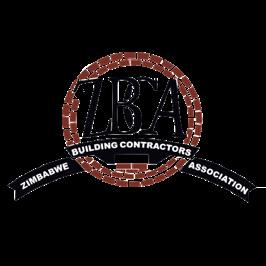

In a bold move to revolutionize the construction industry and enhance skills development, the Zimbabwe Building Contractors Association (ZBCA) is preparing to launch the Zimbabwe Building Contractors Academy. This upcoming initiative aims to serve as a cutting-edge platform that bridges the longstanding gap between academic research and practical industry needs, fostering a new era of Industry 4.0 and Education 5.0 integration.
Embodying Education 5.0 Principles
At the core of the Academy’s vision is the adoption of Education 5.0 a transformative, learner-centric approach that emphasizes experiential learning, stakeholder collaboration, and digital integration. This paradigm shift prioritizes hands-on experiences, industry involvement in curriculum design, and the use of advanced digital tools such as Building Information Modelling (BIM), Internet of Things (IoT), Virtual Reality (VR), and Augmented Reality (AR). Through these innovative methods, the Academy intends to produce industry-ready graduates equipped to meet Zimbabwe’s construction demands and contribute to sustainable development.

The Zimbabwe Building Contractors Academy is envisioned as a hub for industry-driven training modules, short courses, and continuous professional development programs tailored to current and future sector needs. These initiatives will focus on essential areas such as sustainable construction, digital construction management, safety standards, and innovative building techniques. Furthermore, the Academy will facilitate applied research collaborations addressing local construction challenges, ranging from materials innovation to environmental sustainability, thus positioning Zimbabwe as a regional leader in construction excellence.

A key component of the Academy’s strategy involves establishing Industry-Academia Collaboration Hubs dedicated centers within academic institutions managed jointly by ZBCA, industry experts, and researchers. These hubs will serve as incubators for innovation projects, research dissemination, and industry-focused solutions. Additionally, the Academy plans to facilitate student and lecturer exchange programs, internships, and site visits to leading construction firms and research centers regionally and internationally, fostering knowledge transfer and global best practices.
The initiative also emphasizes capacity building for contractors and construction professionals through modular short courses, site-based practical training, and certification programs.
As the Zimbabwe Building Contractors Academy prepares for its official launch, ZBCA invites academic institutions, industry leaders, government agencies, and development partners to join this transformative journey. Together, stakeholders can co-create a resilient, innovative, and skilled construction industry that meets the demands of Industry 4.0 and Education 5.0, ensuring Zimbabwe’s construction sector remains competitive and sustainable for generations to come.
Such efforts aim to elevate industry standards, improve safety and quality, and promote sustainable construction practices. By integrating these elements, the Academy aspires to empower contractors, students, lecturers, and industry professionals ultimately strengthening Zimbabwe’s construction sector and boosting its global competitiveness.
Aligned with global trends and Zimbabwe’s national development goals, the Zimbabwe Building Contractors Academy envisions a sustainable, inclusive, and innovative industry landscape. It aspires to position Zimbabwe as a regional hub for construction research, digital transformation, and excellence driving economic growth and sustainable development across the country.



Entering Zimbabwe’s vibrant construction sector offers numerous opportunities for growth, partnerships, and project execution. However, to operate legally and gain credibility, contractors must adhere to the country’s regulatory standards and register with the Zimbabwe Building Contractors Association (ZBCA).
This registration not only legitimizes your business but also opens doors to lucrative government and private sector projects.
Why is ZBCA Registration Important?
The ZBCA serves as a pivotal industry body that promotes professionalism, ethical practices, and quality standards among building contractors in Zimbabwe. Registration with ZBCA reflects your commitment to excellence and compliance, which is essential for building trust with clients and stakeholders.
Key Requirements for Registration:
To become a registered contractor, you need to provide several documents that verify your company’s legitimacy, financial stability, and technical capacity.
Here’s a detailed breakdown

Certificate of Incorporation
Why it's needed: This confirms your company is legally registered and recognized by the Registrar of Companies. It establishes your business’s legal existence and operational status.
NECCIZ Certificate / Receipt of Registration
Why it's needed: The National Employment Council for Construction Industry of Zimbabwe (NECCIZ) registration demonstrates compliance with industry-specific regulations, safety standards, and employment laws, ensuring your company adheres to national construction practices.
CR14 Form
Why it's needed: The CR14 confirms current company directors and shareholding details, ensuring transparency and accountability within your organization.
Why it's needed: This document outlines ownership structure, essential for assessing financial stability and control of the company, especially when bidding for large projects.
Why it's needed: Valid identification of company directors helps verify their legitimacy, preventing fraudulent registrations, and aligning with anti-money laundering policies.
NSSA Registration
Why it's needed: Registration with the National Social Security Authority (NSSA) ensures your company complies with social security and employee welfare obligations, reflecting good corporate governance.
PRAZ Registration
Why it's needed: The Procurement Regulatory Authority of Zimbabwe (PRAZ) registration demonstrates your compliance with procurement laws, facilitating fair bidding processes.
Detailed Company Profile
Why it's needed: A comprehensive profileincluding your company structure, key personnel, and a portfolio of projects carried out provides insight into your capacity, expertise, and experience, influencing your credibility with clients and the association.
Trade References
Why it's needed: References from previous clients or partners validate your track record, workmanship quality, and reliability, boosting your chances of successful registration and project acquisition.
Registering with the Zimbabwe Building Contractors Association is a strategic move that positions your company as a credible, compliant, and professional player in Zimbabwe’s construction industry. By preparing and submitting these essential documents, you demonstrate your commitment to excellence and readiness to undertake significant projects.
Ready to Take the Next Step?
Visit the (ZBCA website) (https://www.zbca.co.zw) for detailed guidance, application forms, and updates on registration procedures. Ensuring you meet these requirements not only facilitates smooth registration but also paves the way for sustained growth and success in Zimbabwe’s dynamic construction landscape.










































1. The applicant submits a duly completed form to ZBCA Secretariat and pays a joining fee.
2. Upon receipt of completed application form, the ZBCA Secretariat assesses the Human Capital, equipment and past works of the applicant.
3. The form is submitted to the board through the Membership Committee for vetting and approval
4. Successful applicants are required to pay annual subscriptions depending on their category after which they are issued with a membership certificate.
5. A new member will be placed on probation for a period of one year.
6. After expiry of the Probationary period, the National Executive Committee shall on the basis of a report from the membership committee admit the member on probation to full membership.
7. After admission to full membership, ZBCA secretariat advises the Member to approach the Ministry of Local Government Public Works and National Housing for categorisation.
• Contractor
• Associate (suppliers and service providers)
The following documentation is required for registration as a member of ZBCA and must be attached to the application form.

WITH THE COMPANY STRUCTURE (ORGANOGRAM), PROJECTS CARRIED OUT (FINISHED AND CURRENT) WITH DATES AND VALUES, CLIENT’S NAME, PHYSICAL ADDRESS, CONTACT CELLPHONE, LANDLINE AND EMAIL ADDRESS.
1. LOBBYING, ADVOCACY AND REPRESENTATION
Member’s voice matters when it comes to issues, regulations, legislation and statutes that affect your business. ZBCA represents members (employers) at the National Employment Council for the Construction Industry in Zimbabwe, through participating in sector wages negotiations, regulation of industry wages and gazetting of rules and regulations for the construction industry. ZBCA representsmembers in engaging policy and decision makers, government officials, regulatory bodies and key stakeholders on matters of concern to member businesses.
ZBCA holds the Annual General Meeting of members, the Annual Conference open to the business community, the Annual Awards gala, meetings and forums that discusses topical issues. ZBCA also participates in fora organized by other stakeholders.
ZBCA assists members deliver quality services to their clients in a professional manner and to move ahead of the competition through building the capacity of members. This is achieved through holding of training workshops, seminars and conferences on issues suggested by members themselves through the company visits undertaken periodically. The Association produces information guides on topical areas.
ZBCA connects its members with manufacturers and service providers that support their businesses. The Association negotiates for discounts with material and services suppliers. ZBCA trains members on how to use the Trade Map (an International Trade Center) market analysis tool useful for identifying new source and export markets for their businesses.
ZBCA works with members, engineers, architects, quantity surveyors, real estate agents to produce tools, publications and promotional material that facilitate members to provide customers with a full and satisfactory service under the auspices of the Zimbabwe Construction Industry Association and National Joint Practice Commission.
ZBCA produces the weekly bulletins, monthly newsletters, quarterly magazines and an annual directory for members only. The Association also produces a member projects book where member projects are showcased free of charge
ZBCA represents member companies at the Ministry of Local Government and Public Works during categorization with the Ministry. The Association also works closely with the Ministry of National Housing and Social Amenities, Ministry of Transport and Infrastructural Development and other relevant ministries.
8. MEMBER LIBRARY, BUSINESS AND DOCUMENTATION CENTRE
ZBCA runs a library and business centre that is accessible to members for free and offers other discounted services to members.
ZBCA participates in selected local, regional and international trade fairs and facilitates its members to participate under its umbrella thereby managing participation costs, while introducing SME’s to tradeshow marketing.
ZBCA proactively visits its members to learn their concerns for packaging and presentation to relevant bodies for resolution. During these visits the capacity of members is established and possible solutions brainstormed.
Through the National Joint Practice Committee (NJPC), ZBCA participates in developing standard documents that are easy to understand and up-to-date for use by building contractors. The Association sells contract documents to its members at discounted rates.
The Association promotes the delivery of quality services to clients by its members. ZBCA has over the years developed, and continues to develop the capacity of its members to deliver quality services to their clients in a professional manner. Furthermore the Association assists clients identify the contractor suitable for their particular project. The Association is in the process of becoming ISO certified.
13.
ZBCA assists members deliver quality services to their clients in a professional manner through building the capacity of its members. This is achieved through holding of training workshops, seminars and conferences on issues suggested by members themselves through the company visits undertaken periodically. The Association produces information guides on topical areas.
“To promote, empower and capacitate a growing membership and advocate for equity in the construction and allied industries” ― Zimbabwe Building Contractors Association (ZBCA)
DO NOT FORGET TO RENEW YOUR SUBSCRIPTION
THE FOLLOWING DOCUMENTATION IS REQUIRED FOR REGISTRATION AS AN ASSOCIATE MEMBER OF ZBCA AND MUST BE ATTACHED TO THE APPLICATION FORM.
6. DETAILED COMPANY PROFILE WITH THE COMPANY STRUCTURE (ORGANOGRAM), PROJECTS CARRIED OUT (FINISHED AND CURRENT) WITH DATES AND VALUES, CLIENT’S NAME, PHYSICAL ADDRESS, CONTACT CELLPHONE, LANDLINE AND EMAIL ADDRESS.
ZBCA is registered with the Ministry of Public Service, Labour and Social Welfare as an Employer Body in the Construction Sector. The Association is a member of the Zimbabwe Construction Industry Association, Joint Industrial Council, Employers’ Confederation of Zimbabwe and the Standards Association of Zimbabwe. The Association works under the Ministry of Local Government, Public Works and National Housing and also sits on the Categorization Committee chaired by the Ministry. The Association also works closely with the Ministry of National Housing and Social Ammenities as well as Ministry of Transport and infrastructure development and other relevant ministries.
ZBCA utilises retired and active professionals such as Architects, Engineers, Quantity Surveyors, Lawyers, Accountants and Suppliers of building materials to assist members in providing quality services to their clients.

Platinum
Diamond
Gold
Silver
Bronze
BENEFITS
• Free advertising on our B2B WhatsApp platform, website & social media pages
• Free flyer distribution at ZBCA offices
• 8 free adverts per year in ZBCA weekly E-Bulletin
• Unlimited banner displays at all association events
• Access to association membership directory
• Partnership opportunities with association and members eg. Member discounts, promotions
• Co-branding on merchandise
• Priority to rent space in ZBCA office to brand
• First preference on all ZBCA product or service requirements the member specialises in.
• Organisation’s tour of plant/factory twice a year
• Any other agreed benefits
• Free advertising on our B2B WhatsApp platform, website & social media pages
• Free flyer distribution at ZBCA offices
• 4 free adverts per year in ZBCA weekly E-Bulletin
• Banner display at 2 association events
• First hand information about association members & their requirements
• Partnership opportunities with association eg. Member discounts, promotions
• Option to rent space in ZBCA office to brand Organisation’s tour of plant/ factory twice a year
• Free advertising on our B2B WhatsApp platform
• Free flyer distribution at ZBCA offices
• 2 free adverts per year in ZBCA weekly E-Bulletin
• Banner display at 2 association events
• Free advertising on our B2B WhatsApp platform
• Free flyer distribution at ZBCA offices
• Free advertising on our B2B WhatsApp platform

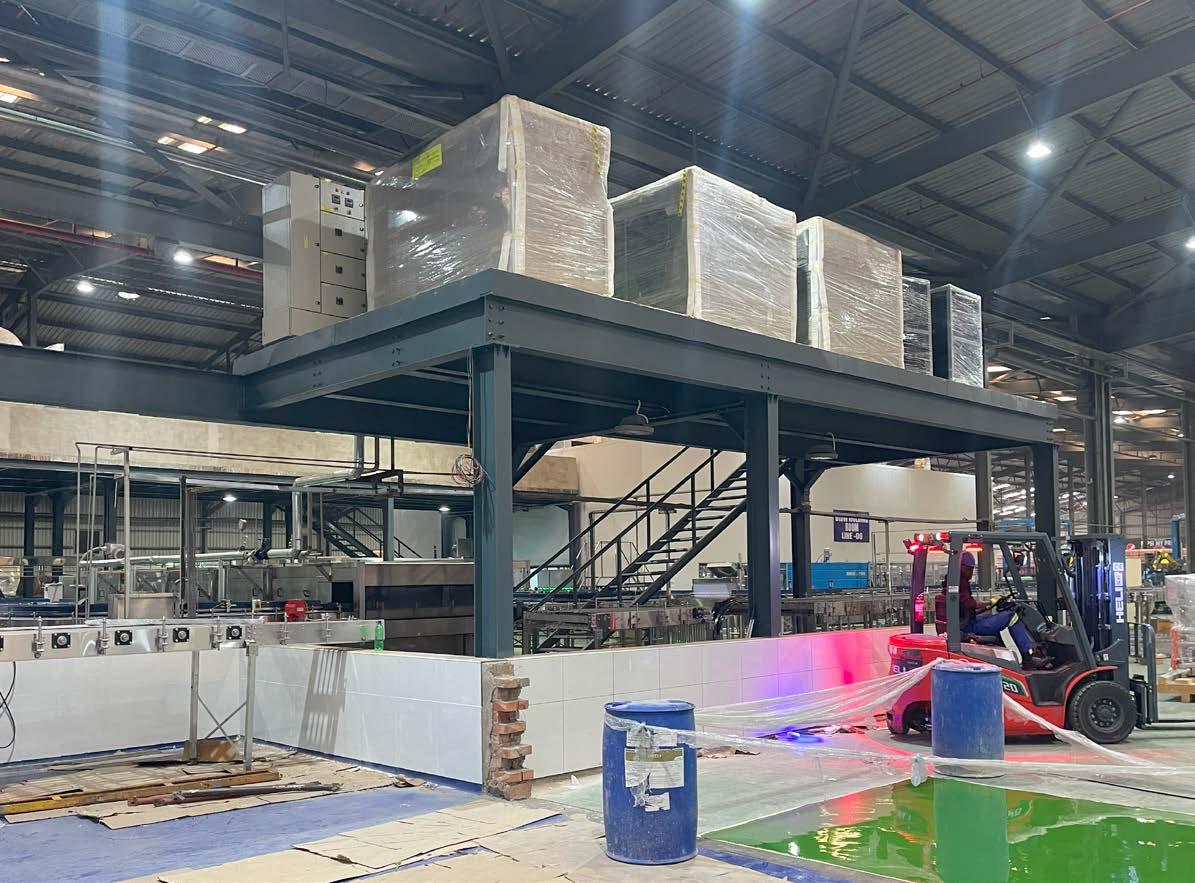
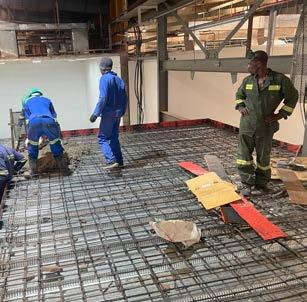
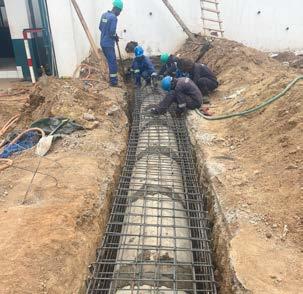
• Construction of infrastructure
This includes but is not limited to access and haul roads, dams, canals, water pipelines, pumping stations, water treatment plants, sewer treatment plants, housing and construction steel portal and concrete platforms
• Construction and maintenance of Industrial and Commercial Infrastructure

• Electrical and mechanical installations
• Project Management
• Irrigation, water & sewer reticulation
• Installation of industrial and domestic solar power
• Road construction & drainage










“If it doesn’t say Harvey tile, it’s not Harvey Tile” Look for the Harveytile Quality Stamp +
















The previous Zimbabwe Building Contractors Association (ZBCA) Summit of 2024 concluded with a set of Major Resolutions designed to significantly advance the construction industry in Zimbabwe and the region. These resolutions focus on empowerment, economic contribution, governance, and strengthened regional cooperation, aiming to foster a more resilient and sustainable sector.
Key Resolutions for Industry Transformation structured around several core themes:
Empowerment and Standards: The ZBCA committed to promoting equity, fairness, and justice to empower building contractors across all sectors. This is paired with a strong focus on maintaining high standards in all construction projects and upholding Corporate Social Responsibility (CSR).
Economic Growth and Infrastructure: A key resolution is to continue leveraging the construction sector's role in supporting national employment and achieving NDS1 targets. This includes a focus on infrastructure upgrades to support urbanization and overall economic growth.
Governance and Legislation: Crucial for industry regulation, the ZBCA is working toward the passage of the Construction Industry Bill to regulate and empower the sector. Additionally, all infrastructure projects must be standardized to conform to SATTC standards and other regulatory frameworks.
Collaboration and Investment: To address liquidity challenges, the ZBCA seeks to strengthen Government and Private Sector Collaboration, aiming for substantial project investments. This will be facilitated through promoting effective Public-Private Partnerships (PPPs) and supportive legislation.








Regional Integration: The ZBCA stressed the importance of regional integration and cooperation to attract investment and promote sustainable economic growth, which includes recognizing and collaborating with equivalent organizations like ZACCI (Zambia Association of Chambers of Commerce and Industry).
Strategic Partnerships to bolster the ZBCA’s vision now underpinned by crucial Memoranda of Understanding (MOUs) and collaboration efforts, reinforcing the ZBCA’s strategic direction:
High Standards and Skills Development: To promote high standards, quality construction, ethical business practices, skills development, policy advocacy, and sustainable practices. MBSA's mandate, as presented by President Musa Shangase, centers on these exact areas, alongside promoting inclusive economic growth and adopting new technologies.
ZBCA & Zimbabwe Investment and Development Agency (ZIDA)
Investment and Liquidity: To enhance collaboration in linking investors with local contractors, facilitating infrastructure investments, and addressing liquidity challenges. The partnership aims to initiate at least $100 million worth of projects by the second quarter of 2025 and standardize projects to SATTC standards.
ZBCA & Bantwana Zimbabwe
Social Responsibility: To support social responsibility initiatives and community development, focusing on inclusive development and improving infrastructure and services in underserved areas.
These MOUs reflect a commitment to collaboration, innovation, and sustainable development, enhancing the construction industry’s role in driving economic growth and improving living standards. Additionally, the ZBCA resolved to Recognize Equivalents in Neighbouring Countries like ZACCI (Zambia Association of Chambers of Commerce and Industry) and Enhance Representation and Advocacy for the sector in national economic policies. These collaborations are set to foster a collaborative, innovative, and sustainable construction sector across the region.


Ministry of Local Government, and Public works
Ministry of Public Service, Labour and Social Welfare




Ministry of National Housing and Social Anemities

Ministry of Transport and Infrastractural Development

Ministry of Industry and Commerce

Ministry of Finance, Economic Development and Investment Promotion
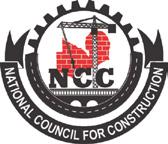



Ministry of Women Affairs, Community, Small and Medium Enterprises Development

Ministry of Youth Empowerment and Development and Vocational Training

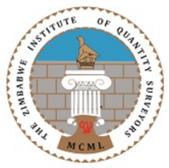
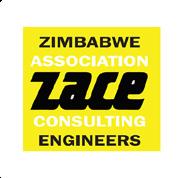
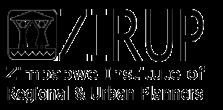
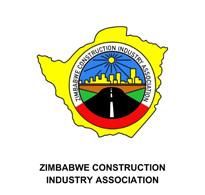




EMAIL ADDRESS CATEGORY A CONTRACTORS
A & SONS CONSTRUCTION BUILDING MR. A. CHAERUKA 31 WHEELER AVENUE, EASTLEA, HARARE
ALU-MEN SHOPFITTERS (PVT) LTD ALUMINIUM & SHOPFITTING SERVICES DR KUZIVA MAMVURA 1565 AMBLESIDE ROAD, ASPINDALE, HARARE
APPLERIDGE INVESTMENTS CIVILS EXILE MBEDZI 4 FORTUNA HOUSE, CNR. GEORGE SILUNDIKA/MASOTSHA NDLOVU, BULAWAYO
info@aandsons.co.zw; gmanjese@aandsons.co.zw; accounts@aandsons.co.zw
info@alumenshopfitters.co.zw
appleridgeinvest@gmail.com
ARCHCIV TECHNICAL SERVICES ALUMINIUM MR. K. KUGWA 52 REMUERA ROAD, SPITZKOP, SNAKE PARK 0712604725/0776378955/077443226 4 0712620219 archciv@zol.co.zw; kanikugwa@ gmail.com
ASPHALT PRODUCTS (PVT) LTD CIVILS ENG. F. M. MANGWENDEZA STAND 14999, DONNINGTON WEST, BULAWAYO
BETTERBRANDS CONSTRUCTION PVT LTD CIVILS GILBERT DUDZAI DUMBURA 2 ELLIOT ROAD, GREENDALE, HARARE
BIG NYATI TRUST CONSTRUCTION BUILDING & CIVILS ARCHITECT MORGAN SIBANDA 124 BLUE HILLS, CHRISTONE BANK, MAZOWE
BITUMEN RESOURCES CIVILS MR SIMBARASHE TEGEDE
CLOSE, GROOMBRIDGE, HARARE
BROADHAVEN CONSTRUCTION BUILDING & CIVILS DAKARAI A MAPURANGA 5 HEIGHTS CLOSE, ROLF VALLEY, CHISIPITE, HARARE
CHISIPITE DRILLING PRIVATE
DOUMALET
DRAWLINK CIVIL ENGINEERS CIVILS MR. LAZARUS
info@asphaltzimbabwe.com; asphaltzim@gmail.com; bridget@ asphaltzimbabwe.com
vimbai@ betterbrandsconstruction.com
morgansibs@gmail.com; info@ bignyati.co.zw; pm@bignyati. co.zw; morgan@bignyati.co.zw; finance@bignyati.co.zw; admin@ bignyati.co.zw
bitumenresourceszw@gmail. com/ admin@bitumenresources. co.zw
bhhconstruction20@gmail.com
burchanland@gmail.com
chinatie9@gmail.com
dakaraim@gmail. com;richmadzudzo@gmail.com
gchipumha@doublecconstruction. co.zw; info@doublecconstruction. co.zw
farai@drawcard.co.zw; drawcardenterprises@gmail.com


frogmergeconstruction@gmail. com FRONTLINE CONTRACTING
info@frontlinecontracting.net; tamuka@frontlinecontracting.net

MR. A. TSORAI 9 MALVERN CORNER, 65 S. NUJOMA STREET, HARARE
HERBERTS CONSTRUCTION CIVILS MR. H. MACHAWI 303 LONGCHENG PLAZA, BELVEDERE, HARARE
HERITAGE CONSTRUCTION COMPANY BUILDING MR. TENDAYI TSVETU UNIT 6, GLENEAGLES INDUSTRIAL CENTRE, 119 DAGENHAM ROAD, HARARE
HORSTEIN CONSTRUCTION BUILDING & CIVILS MR. S. M. CHISWO 41 CAMBERLY ROAD, ASHDOWN PARK, HARARE
ITRO ENGINEERING PRIVATE LIMITED CIVILS CLAYTON MUSHATI M23, MEZZANINE FLOOR, ZIMDEF BUILDING, HARARE
helensvaleconstruction@gmail. com
hmachawi@gmail.com; hmachawi@herbertsconstruct. com
tsvetu.heritage@gmail.com; tashinga.heritage@gmail.com; tsungi.heritage@gmail.com
757 smchiswo@gmail.com
mushangwetj@gmail.com
JADECON ENTERPRISES t/a JADECON CONSTRUCTION BUILDING & CIVILS EPHRAIM MUSEVA 694 INDUSTRIAL ROAD, MASVINGO 039262595/0772390156/ 0772667360 ephraimmuseva@gmail.com
LAQUER CONSTRUCTION BUILDING & CIVILS FUTURE CHAKANYUKA 21 KHAMI ROAD, CONLUIT PARK, BULAWAYO 09-62681/0715 518 055 laquercon@gmail.com
MAK BOKANO CONTRACTING BUILDING & CIVILS ENG. R. M. NHERERA 971 NURSEY ROAD, MOUNT PLEASANT, HARARE
MANAH BLDG CONSTRUCTION BUILDING, CIVILS, ALUMINIUM SERVICES & ELECTRICAL
MR. A. MAFUYA 1629/21609 TARISA ROAD,DAMOFALLS INDUSTRIAL PARK,RUWA, ZIMBABWE
MZANSI CIVILS & TAR PVT LTD CIVILS & BUILDING MR MARTIN NHARINGO 11326 COWIE ROAD, COLD COMFORT, HARARE
MEGAWORKS CONSTRUCTION PVT LTD BUILDING & CIVILS ENG GRACIOUS KADIRIRE 91 HARARE DRIVE, MALBOROUGH, HARARE
700 |00
|
86442 11064 - 5 rmnherera@gmail.com; makbokano@gmail.com; info@ makbokano.co.zw
00 263 242005918/17/00 263 778 580 835/00 26371 6406 613/00 263 776 916 062
manah.buildingconstruction@ yahoo.com; edith@manah.co.zw; edzvetero0@gmail.com
martin@mzansicivils.co.zw
gkadirire@mega-works.com
MORESURFACE INVESTMENTS PVT LTD BUILDING & CIVILS MRS TENDAI SITHOLE 71 PHILIPS AVENUE, BELGRAVIA, HARARE, ZIMBABWE 0712 082 834/0775 990 714 Tendai@moresurfaceinvestments. com/ admin@ moresurfaceinvestments.com
MUTUAL CONSTRUCTION BUILDING & CIVILS MR. MADAMOMBE 1063, TYNWALD SOUTH INDUSTRIAL AREA, HARARE
NAILIT INCORPORATED
734 963 855 mutualconstruction1997@gmail. com
qs@nailitincorporated.co.zw
NENGO BUILDERS P/L CIVILS MR. W. NENGOMASHA 1029 Chikurubi, Manresa Industries, Harare, Zimbabwe 00263242 437518-20/08677 170349/08677194709/00263 714 886 413/00263 772 515 353-4 info@nengobuilders.co.zw; nengobuilders@gmail.com
72126910 nestanetpvtltd1998@gmail.com
OLYIC CONPRECAST CIVILS HARDLIFE DUBE 30 RAYAMM EASTLEA, HARARE
olyicsales2015@gmail.com


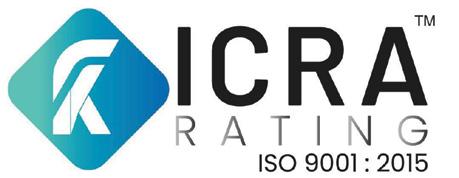


In today’s evolving economic landscape, “access to finance” has becomemore than just a developmental buzzword—it is a critical enabler ofbusiness resilience, innovation, and inclusive growth.
1.Issuer Credit Rating Services
•Financial Institutions Credit Ratings
•MFI Investment Credit Rating (ZAMFI)
•Corporate Investment (ZSE) Credit Rating
2.Portfolio Rating Services
•Bank Loan Credit Rating
•Investment Portfolio Rating
3.Environment, Social and Governance Rating Services
•Environment/Climate Rating
•Social & Governance Rating
4.Bond Credit Rating
5.Sovereign Rating
6.Credit Scoring SPECIAL SERVICES




Yet, while access to capital is undeniably a need across sectors from early-stage startups and social enterprises to mature SMEs and public entities—the more pressing question remains: is everyone truly prepared for it?
Far too often, the conversation stops at availability. Financial institutions, development finance actors, and impact investors are increasingly open to deploying capital across frontier and underserved markets. However, this openness does not always translate into deals, largely because many prospective investees lack the readiness needed to meet investor expectations.
This brings us to the concept of Investor-Ready Materials—a set of clear, verifiable documents and practices that demonstrate a business is not only investment-worthy but also capable of managing capital responsibly and delivering on its promises. These materials form the foundation of investor confidence and are essential to securing funding. But what do they really entail?




SURVIVAL
SYVERN INVESTMENTS
LIMITED
TALCOURT CONSTRUCTION
MRS. SILVEN CHISEWE 21 ST. QUINTIN AVENUE, EASTLEA, HARARE
& CIVILS ONISMO MUZHINGI 56 PALMER ROAD, MILTON PARK, HARARE
TALMACH EARTHMOVING & PLANT HIRE CIVILS TATENDA MACHANGU 17053 BOSHOFF DRIVE GRINITESIDE HARARE
TARTECH CONTRACTING PVT LTD CIVILS & BUILDING SALLY CHIKWAYA 6 BERYL ROAD, MSASA, HARARE
TAZVI PLANT AND EQUIPMENT CIVILS JOSEPH TAZVIONA MHAKA 53 ROSSAL ROAD, GREENDALE, HARARE
TEAMVIEW INVESTMENTS PVT LTD
MR CLEMANCE CHAPFAVA CNR GLENEAGLES & DAGENHAM ROAD, WILLOWVALE, HARARE
TENCRAFT CONSTRUCTION PVT LTD CIVILS MR PETER CHIBAYA 1077 VENTERSBURG ESTATE, SUNWAY CITY, HARARE, ZIMBABWE
TENSOR SYSTEMS (PVT) LTD BUILDING & CIVILS ENG. N. MUSOWE 535 Loreley Close, Msasa, Harare
THERMAL COMFORT T/A BLUESPOT MECHANICAL MR BRIAN KATSANDE 20 GEORGE ROAD, HATFIELD, HARARE 0242 570 673/
THORHUST ENGINEERING PVT LTD
cchisenye@gmail.com
sales@continentalwire.co.zw
muzhungio@gmail.com; gonoplumbs@yahoo.com.
tatendamach@gmail.com
admin@tazviplant.co.zw
clement@teamview.co.zw
ngonidzashemusowe@gmail. com; nmusowe@tensor.co.zw; info@tensor.co.zw
brian@bluespot.co.zw/ briank@ thermalcomfort.co.zw
MR. M. CHISAISA 804 GUSHUNGO DRIVE, NORTON 00263772 468 577/00263 773 245 746 mchasaisa@gmail.com; thorhursteng@gmail.com
TRANSITHOMES CONTRACTORS CIVILS MR. TENDAI MATIMBA 23 POLLET AVENUE /6559 WESTLEA INDUSTRIAL, HARARE
TRANS STAR (PVT) LTD BUILDING & CIVILS MR. P. KAGWERE 481 EMPOWERMENT WAY, WILLOWVALE, HARARE
TRARVESAL TRADING CIVILS GAYLORD CHIZANA 14 AMBY DRIVE, MSASA
TSAPO CONSTRUCTION
TWENTY FIRST CENTURY BUILDING BUILDING MR. M. SIBANDA 262 EMPOWERMENT WAY, WILLOWVALE, HARARE
002632427539546/00263712411982/00263773395533 tenmatimba@transithomes. com; tenmatimba@axa.co.zw; tapmaibvisira@transithomes.com
00 263 8677195891 | 00 263 775 385 590 kagwerep@trans-star.co.zw; trans-star@iwayafrica.co.zw
00 263 8677195891 | 00 263 775 385 590 sales@traversal.co.zw
lesley@tsapogroup.co.zw
263 242 612 932-3/00 263 242 612 024/00 263 86442 11707/00
tfc@africaonline.co.zw; twentyfirstcenturycontractors@ gmail.com VITAL COVER PVT LTD
LOYD FARAI GWASARIRA 10650 JERUSALEM T/SHIP, HIGHFIELD, HARARE
WILTACON PVT LTD CIVILS WILLIAM TSVUURA 324 AFFIRMATIVE WAY, WILLOWVALE, HARARE
WRR MASTER & SPECIALIST CIVILS WELLINGTON RUNGANGA 8TH FLOOR, CONSTRUCTION HOUSE, 110 LEOPOLD TAKAWIRA STREET, HARARE
ZIMBUILD PROPERTY INVESTMENTS BUILDING & CIVILS DR. T. MANZUNGU 74-9TH STEREET, GWERU
ZINHONDO HOLDING ZIMBABWE CIVILS WILSON ZINHONDO 8 ELIZABETH WINDSOR ROAD, MARLBOROUGH, HARARE
CATEGORY B CONTRACTORS
AFRICA BITUMEN
vitalcover445@gmail.com
info@wiltacon.com
info@masterspecialists.co.zw
tinnrue@gmail.com; tmanzungu@ zimbuildproperties.co.zw; tmanzungu@tmgroupzw.com
993 wilsonzinh@gmail.com
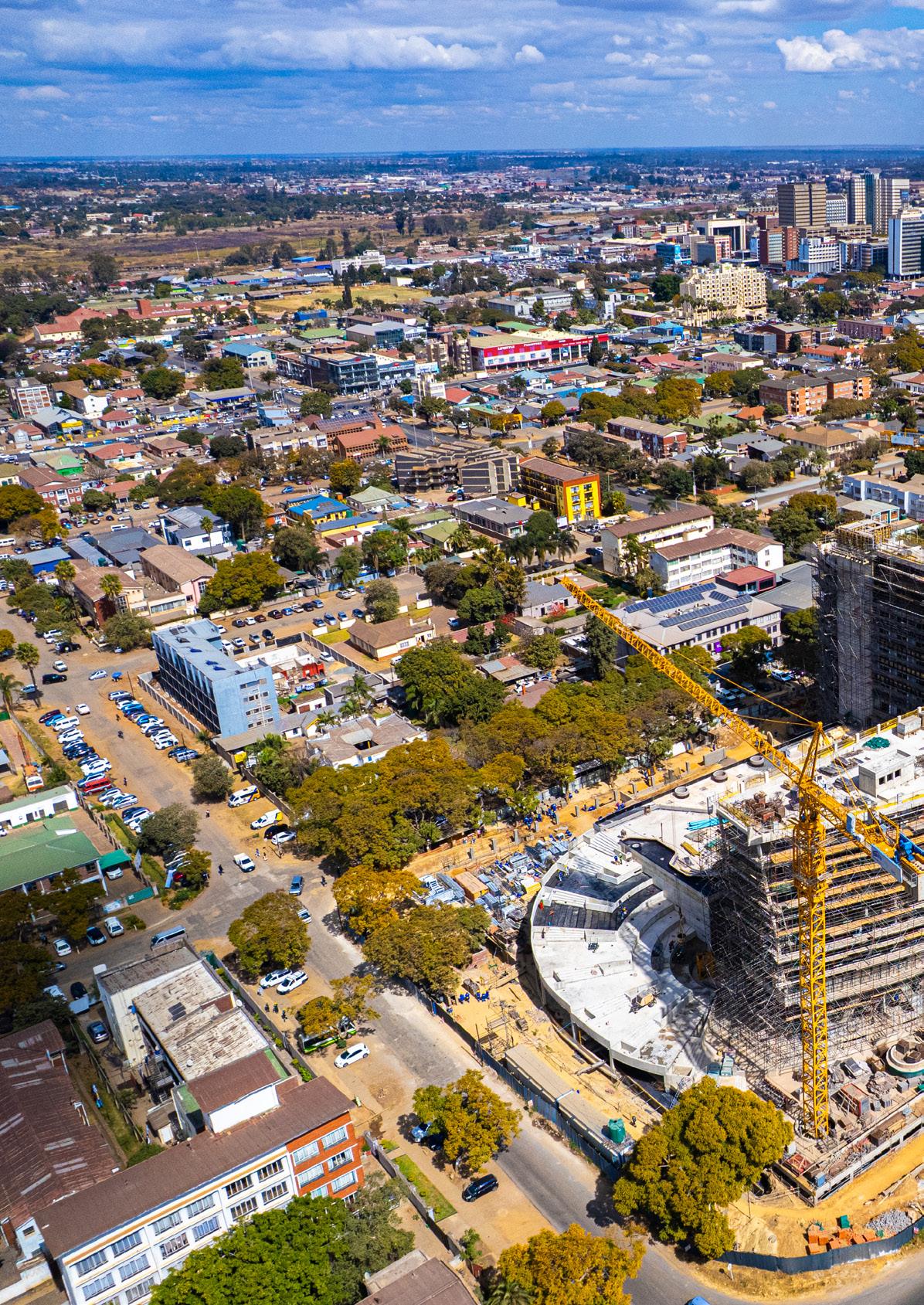

INGENIOUS
KASHAYA M TRANSPORT & EQUIPMENT PVT LTD CIVILS MARKSWELL KASHAYA
KAY TAP INVESTMENTS PVT LTD CIVILS MR KUDAKWASHE MUBAYIRA 15 SHEPPERTON ROAD, GRANITESIDE, HARARE
LONESTAR CONSTRUCTION & ENGINEERING PVT LTD STRUCTURAL SAMUEL ZENDA 222 CHERIOT ROAD, WATERFALLS, HARARE
MAKESTRUCT PVT LTD CIVILS GARIKAI S RATIDZO 59 SELOUS AVENUE, HARARE
NALDLINE TRADING PVT LTD BUILDING RONALD TARUPUWA 7 EVERRET CLOSE, MT PLEASANT, HARARE
PRAISE CONSTRUCTION
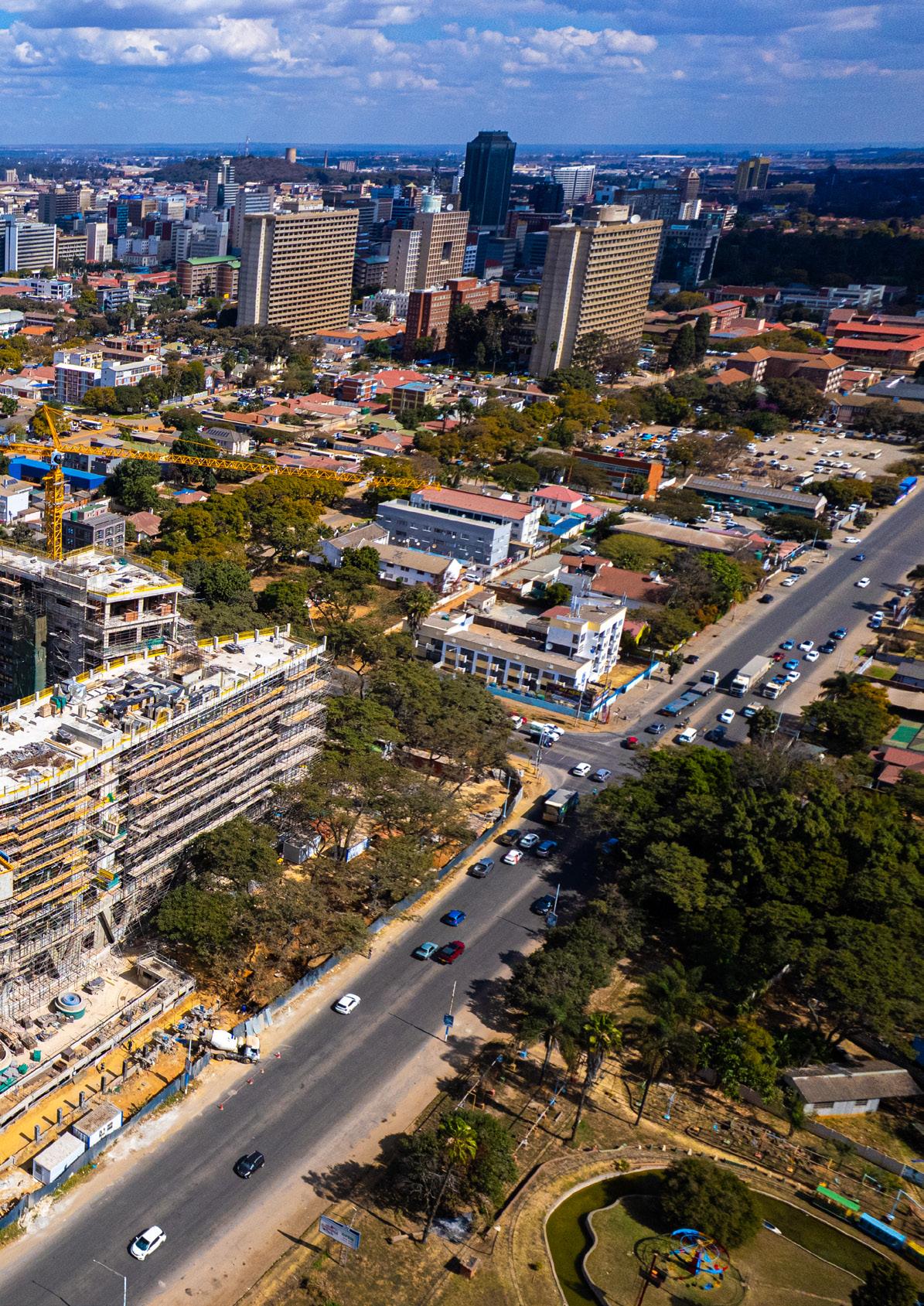
hydrofrontlinecivil@gmail.com; mthahncube2020@gmail.com
kuzygee@icloud.com; maxwell@ kashayamtransport.co.zw; admin@kashayamtransport.co.zw
kaytapconstruction@gmail.com
info@lonestarconstruction.co.zw
mmoyana@moderateair.com
naldline.exodusengineering@ gmail.com
PATRICIA CHIGOMBE 4B CAMPBELTOWN ROAD, BLUFFHILL, HARARE
RACHICO INVESTMENTS BUILDING WELLINGTON CHIKOORE 31949 MABVAZUVA ESTATE, RUWA
RASHPING PVT LTD CIVILS RASHMORE PINGU 3/19 LILLIAN WAY, WATERFALLS, HARARE
SHIP TRACKS PVT LTD CIVILS LUCKMORE GAPA 78 CAMERON STREET, HARARE
SYMTH ELECTRICAL PVT LTD ELECTRO MECHANICAL ENGINEERING
SMYTH 12 JANSEN ROAD, SENTOSA, HARARE
SYPREMO INVESTMENTS PVT LTD CIVILS GERALD TAPFUMA
RUDO NYAKUHWA 62 MUTARE ROAD, MSASA,
ENGINEERING PVT LTD
admin@projects56.co.zw
rachicco@gmail.com
raspingpvt@gmail.com
shiptracks@yahoo.com
info@smytheletrical.co.zw




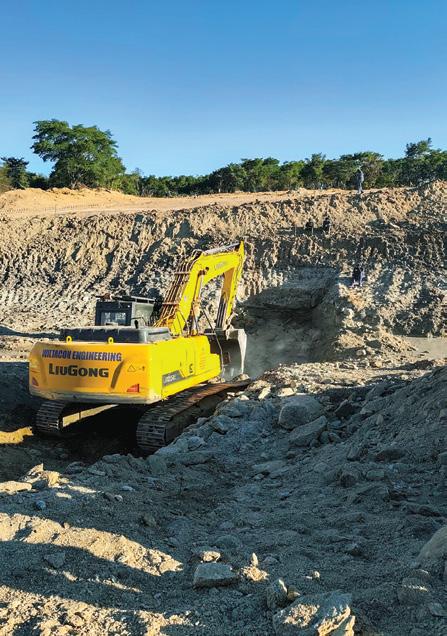





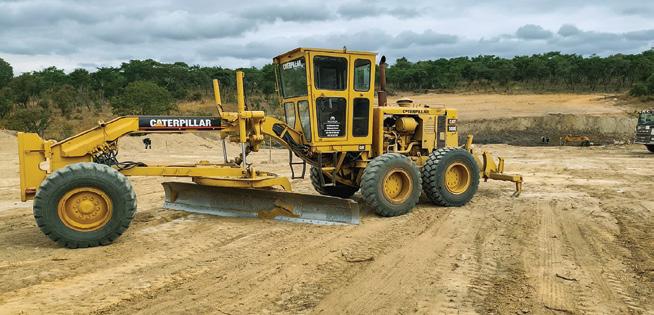





CATEGORY 'D' CONTRACTORS
ALUMINIUM DESIGN & WORKS PVT LTD ALUMINIUM
gullifford.contractors@gmail.com
chikuhuhus@yahoo.com; extrasturdy@gmail.com
FALCON SEVEN DESIGN & ENGINEERING PVT LTD BUILDING SIMON SEVEN 107 HARARE DRIVE, MT PLEASANT,
gateconstruction263@gmail.com LARD ENGINEERING PVT LTD BUILDING & CIVILS MR WILLARD CHIRUNGA
HARARE
LUPART TECHNOLOGIES PVT LTD
A BETSERAI NO 2 SHANIRA DRIVE, MANDARA, HARARE
REMUF TRADING PVT LTD CIVILS MR REGIS MADZEKE 2ND FLOOR, RED BRIDGE, EASTGATE MALL, HARARE
ALUMINIUM &
ALUMINIUM & SHOPFITTING COLLINS MAFARA 7 TILBURY ROAD, WILLOWVALE, HARARE. BA SUNSHINE BAZAAR, S. MAZORODZE ROAD, HRE
PEMBERAI SIBANDA 1577 MAKWASHA, ZVISHAVANE
leafwaypvt@gmail.com; mafukidzetapiwatawanda@gmail. com; mjmakoni@gmail.com
partglobal@gmail.com; partlogtechnologies@gmail.com
remuftrading@gmail.com


SOCOMA AFRICA PVT LTD CIVILS MR K GURURE 2803 CAVENHAM DR B/HILL HARARE
CATEGORY 'F' CONTRACTORS
AKIRA INVESTMENTS PVT

NOBUKHOSI CHIMBIMA
3, ABILITIES SHELTERED WORKSHOPS, 23RD AVENUE, BELMONT, BULAWAYO
ENAT BLUES PVT LTD BUILDING ALOUS TAGWIRA 10175 HATCLIFE CONSORTIUM, BORROWDALE, HARARE
GLOBAL SUN TECH PVT LTD
MR EMMANUEL MUNGOFA
MUTODZANISWA BAY 1 HARROW ROAD MSASA
SQUAD HELP PVT LTD BUILDING BRIAN C NYAMUTAMBA 6156 GRANARY HARARE
TATANT MARKETING PVT LTD
CATEGORY 'G' CONTRACTORS ALUMINIUM EXPERTS & REFURBISHMENTS PVT LTD
CONSTRUCTION PVT LTD
MADAMOMBE
EMMANUEL MAKAMBA
akirainv@gmail.com
647 enatblues@gmail.com
risurgeengineering2019@gmail. com
15059 MARKET ROAD KELVIN NORTH, BULAWAYO
MHAKA ANOLD 7 BODLE EASTLEA, HARARE, ZIMBABWE
MR TENDERERE TSIKA 42 H/CHITEPO STREET, MUTARE
0719202258 diamondallianceinvestments@ gmail.com



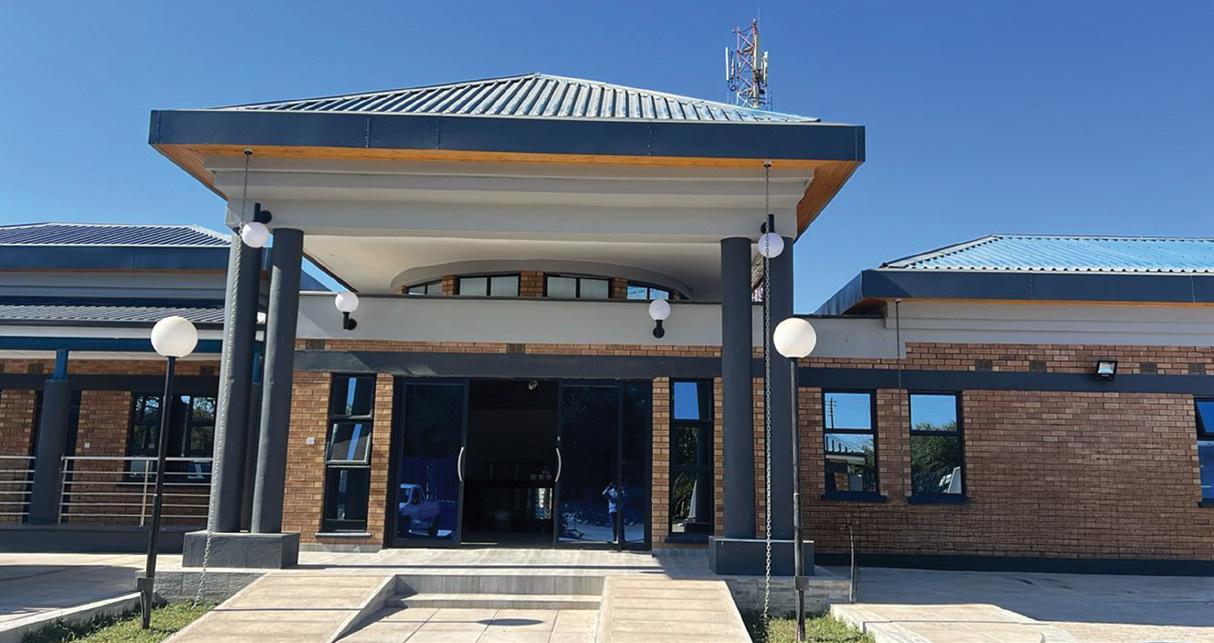
•

ASSOCIATE MEMBERS ALLIANCE INSURANCE COMPANY P/L
MR CLEMENCE NYAMUTSA 66 RIDGEWAY NORTH, BORROWDALE, HARARE, ZIMBABWE
ALLIED TIMBERS ZIMBABWE (PVT) LTD PLATINUM MR TALKMORE KANDA 125 BORGWARD ROAD, MSASA, HARARE
clemence@aic.co.zw
829 infor.holdings@alliedtimbers. co.zw; tkanda@alliedtimbers. co.zw; nrangwana@alliedtimbers. co.zw; ttigere@alliedtimbers. co.zw
CAPITOL INSURANCE SILVER MR PERCY DUBE NO 8 CAMPBEL CLOSE, MALBROROUGH, HARARE 00 263
COROSSION PROTECTION SYSTEM SILVER MR KUDA CHEMHURU NO 3 LORELEY CRESCENT, MSASA, HARARE
CREDSURE INSURANCE PVT LTD DIAMOND MR STANLEY KUDENGA 69 SAM NUJOMA STREET, HARARE
SETH CHIMERI 6A RIVINIA DRIVE, MT PLEASANT , HARARE
DULUX PRIVATE LIMITED BRONZE MELISSA NDLOVU HIGHFIELD ROAD, SOUTHERTON
FBC INSURANCE COMPANY LIMITED PVT
HARVEY TILES SILVER NETSAI MUSAKWA 110 MCCHLERY EASTLEA, HARARE
HYGIENIC SERVICES SILVER EDWIN CHIWARA 6 HARARE DRIVE, BORROWDALE HARARE
MAJORCON CIVILS T/A MAJORCON PRECAST SILVER MRS MURIEL MUSARA LOT 7 RERA COMPLEX 21KM PEG, HARARE
dube@capitol.co.zw; capitol@ capitol.co.zw
SAMSON BRICKS PVT LTD BRONZE
SINO-ZIMBABWE CEMENT COMPANY
harvey@iwayafrica.co.zw
|
ws.gardens@gmail.com
royalprecastzw@gmail.com
vickympho1@gmail.com; vicky@ samsonbricks.com
SNIT TRADE CREDIT & SURETY/UNDERWRTING MANAGERS P/L BRONZE SHEPHERD TEMBO 71 MULL ROAD, BELVEDERE, HARARE 00263719436929/00263777436929 tembos@zimnat.co.zw; nengomashac@zimnat.co.zw
